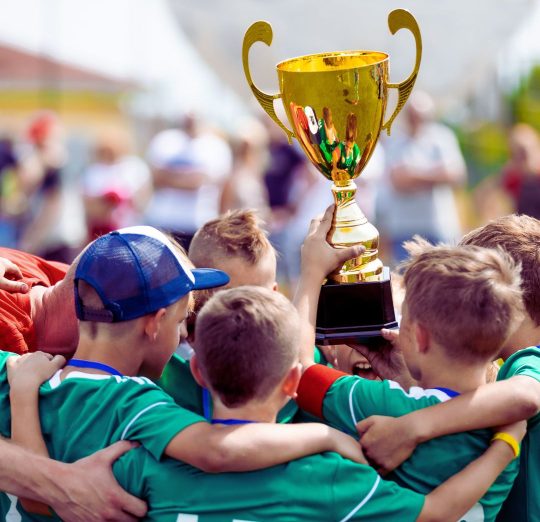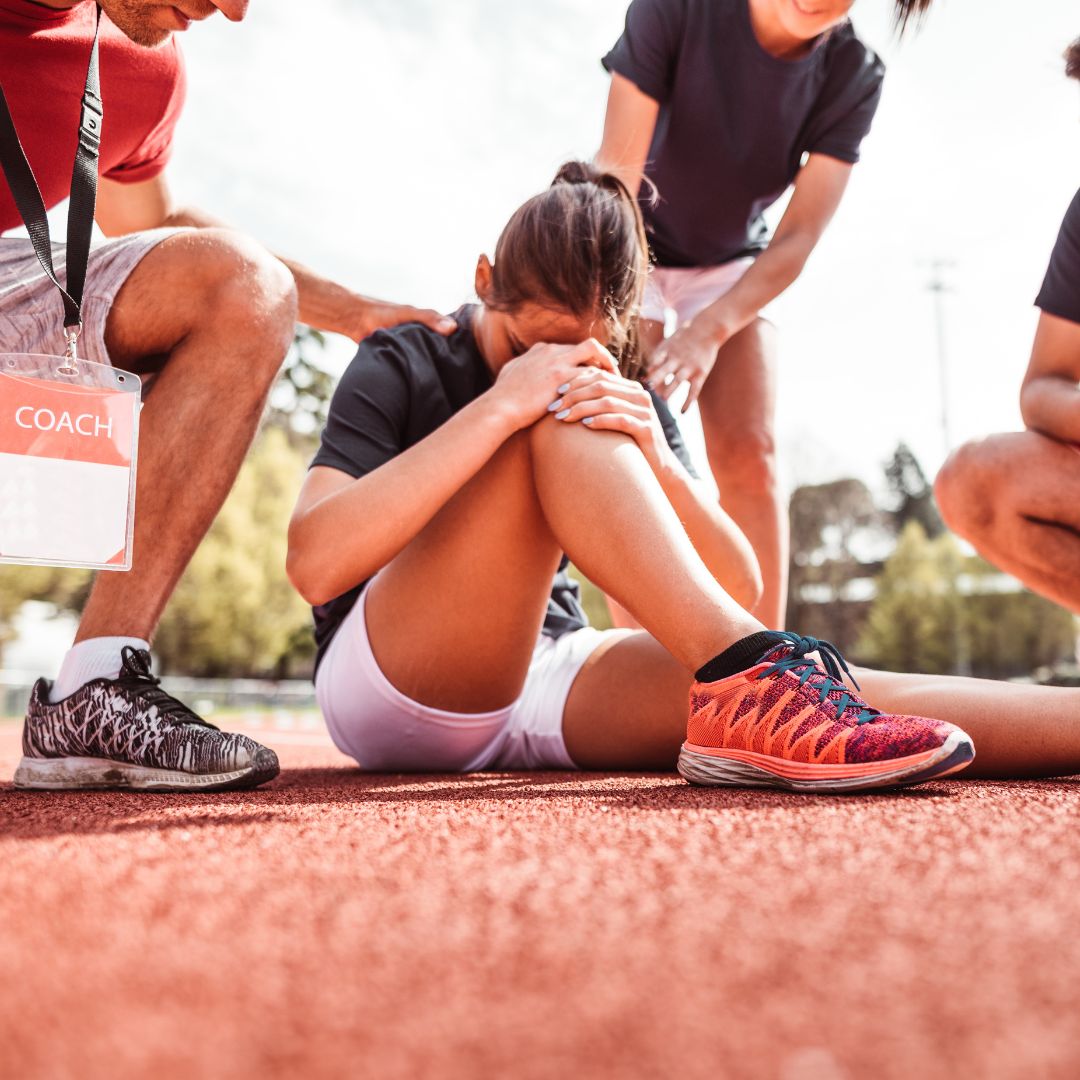Sports Psychologist in Nashville, TN
We train the other half of the athlete
You want to work on your mental game, but how do you train your brain?
Mental training does not get much media attention, but at MindBalanceSPORT we know it is a game changer. The mental skills you will learn at MindBalanceSPORT are generalizable in the classroom, in sport and in life!
We know that mental skills can be successfully taught, even at an early age.

Our Services
Meet the Team





testimonials
Athlete Stories: Real Comebacks, Real Results

Emma, a high school basketball player, tore her ACL in the middle of her junior season. After surgery, she struggled with self-doubt and fear every time she stepped back on the court. Through sport psychology training, she learned visualization techniques and confidence-building exercises that helped her regain trust in her knee. When she returned for her senior season, she didn’t just play—she led her team to the playoffs.

Carlos, a soccer player, suffered a stress fracture in his foot and had to miss half of his season. Sitting out was mentally tougher than the pain itself. We worked on mental engagement strategies to keep him sharp—studying game film, setting small rehab goals, and using mental imagery to stay ready. When he was finally cleared, his confidence never wavered.

Jordan, a track athlete, strained her hamstring before a major competition. She feared losing speed and falling behind competitors. Instead of focusing on what she couldn’t do, we redirected her energy toward mental preparation, using self-talk and goal setting to keep her confidence strong. When she returned, she set a new personal record.
EXCELLENTTrustindex verifies that the original source of the review is Google. It was a great help to my 14-year-old competitive volleyball player daughter. Raven was great to understand and connect with her from start to end. We will continue with our sessions as needed.Trustindex verifies that the original source of the review is Google. Great results! I’ve loved working with Paula. Our sessions have greatly improved both the physical and mental aspects of my tennis game. I’m playing better and having more fun! Highly recommend!Trustindex verifies that the original source of the review is Google. Our family had a wonderful experience with Paula Castro. We needed some additional confidence in a particular area/sport and Paula helped get us there. We know who to turn to if we need help again. She’s been a Blessing. Thank you, Paula!Trustindex verifies that the original source of the review is Google. I highly recommend MindBalanceSPORT. Our son works with John Howard. John is very caring, positive, and effective at working with teenagers. John is an adept listener and created an individualized plan tailored to our son’s personality. After just a few sessions with John, we noticed a significant improvement in our son’s motivation and mental approach to sports and life in general. Our son looks forward to meeting with John and tells us that he benefits immensely from their connection.Trustindex verifies that the original source of the review is Google. Paula Castro is an outstanding professional on the field. She has helped my daughter improve her confidence, preparation, and thanks to these session she feels more prepared and motivated. Paula takes the time also to share (what she can) and align with us as parents to be on the same page. Strongly recommended!Trustindex verifies that the original source of the review is Google. MineBalanceSPORT has quickly become the area's expert in sports psychology. Their reputation is well deserved given their incredibly thoughtful, scientifically based approaches to treating performance-related conditions, and I have only heard glowing, positive feedback from those who have engaged in their program. I will also add that Drs. Jones and Chirby presented to us (our group comprises of 15+ doctors and masters level clinicans) about their program and impressed us all with their level of expertise and passion for this field. I give them my highest recommendation.Trustindex verifies that the original source of the review is Google. Dr. Jones was beyond helpful to me throughout our time together. If you are an athlete and you need advice or assistance this is the place to come to. She completely changed my outlook and mindset in a time when I needed her most. I look forward to staying in touch with her and am forever thankful for her expertise.Trustindex verifies that the original source of the review is Google. Paula has been a huge help with my daughter Morgan coming off her injury. It’s been 18 months since she’s played basketball and she’s thriving because I know Paula is guiding her the right direction. As a mother, I’m extremely gratefulTrustindex verifies that the original source of the review is Google. If you are looking for Amazing Psychologists who can help support you in your sports performance, you need to call MindBalanceSPORT! Dr. Chirby and her colleagues are a wealth of knowledge, they have so many helpful techniques for mind balance, and they have so much compassion for the communities that they serve! Highly recommend!!!
Recovery
While Everyone Has A Physical Ceiling, There Is No Mental Ceiling.
Mastering Performance Psychology in Nashville, TN: A Guide to Peak Performance Techniques
Peak performance under pressure is a crucial skill required by athletes. Sports psychologists have deduced five effective techniques that can aid athletes in achieving their best under intense conditions. By mastering these techniques, athletes can unlock their potential and raise the bar of their performance.
Visualization or mental imagery is a technique where athletes mentally rehearse their performance. As per sports psychologists, the brain cannot distinguish between a vividly imagined event and an actual one. Hence, regular practice of visualization aids in refining motor skills and preparing the mind for actual performance.
Setting realistic yet challenging goals are key to peak performance under pressure. Goals should be specific, measurable, achievable, relevant, and time-bound (SMART). These provide direction to the athlete’s efforts and keep them motivated.
Mindfulness involves focusing on the present moment without judgment. It enables athletes to stay focused amid distractions and maintain composure during high-pressure situations.
Positive self-talk is an effective strategy used by sports psychologists to enhance an athlete’s performance under pressure. It involves silencing the inner critic and replacing negative thoughts with positive affirmations.
Pre-performance routines refer to a sequence of task-relevant thoughts and actions done before performing, which facilitates focus and consistency in performance.
Sports psychologists suggest it is not enough just knowing these techniques; practicing them regularly is equally important.
Practicing Visualization:
- Start with simple scenarios
- Use all your senses for a more vivid experience
- Make it a daily routine
Goal Setting Practice:
- Set both short-term and long-term goals
- Regularly review progress towards these goals
- Celebrate small victories
Mindfulness Practice:
- Incorporate mindfulness exercises into your daily routine
- Use mindfulness apps for guided practice
- Use mindful breathing techniques
Positive Self-Talk Practice:
- Identify common negative thoughts
- Replace them with positive affirmations
- Repeat these affirmations regularly
Pre-Performance Routine Practice:
- Develop a comfortable routine that you can perform consistently
- Practice the routine regularly before practice sessions or games
By mastering these techniques, athletes can significantly enhance their performance and handle high-pressure situations effectively.
Sport Performance Training in Nashville, TN: Uncovering and Overcoming Challenges
For many athletes, performing under pressure is a critical aspect of their careers. However, intense pressure can lead to debilitating anxiety and hinder performance.
Understanding Pressure in Sports
Pressure in sports is often associated with heightened stakes or expectations, such as championship games or high-profile tournaments.
- Performance Anxiety: Athletes may experience intense nervousness or fear of poor performance, which can decrease their confidence and impact their abilities.
- Choking: High-pressure situations may cause athletes to freeze up or choke, leading to subpar performance.
- Burnout: Continual pressure without adequate coping mechanisms may result in burnout – physical and emotional exhaustion that leads to decreased interest in the sport.
Strategies for Overcoming Pressure
Sports psychologists propose various strategies that help athletes manage and overcome these challenges.
Mental imagery involves visualizing success in a high-pressure situation.
Setting small, achievable goals allows athletes to focus on the task at hand rather than on potential outcomes.
Mindfulness techniques involve staying present-minded during competition instead of dwelling on past errors or future consequences. Regular mindfulness practice can lower stress levels and help maintain focus under pressure.
Positive self-talk involves replacing negative internal monologues with positive affirmations that boost confidence levels and enhance performance.
Regular practice of stress management techniques like deep breathing exercises, progressive muscle relaxation, yoga, and meditation can help athletes stay calm under pressure.
Collaborating with Sports Psychologists
Collaborating with sports psychologists can be a game-changer for athletes dealing with performance pressure. These professionals provide personalized strategies to manage pressure effectively. They offer valuable insights into understanding individual stress triggers and developing coping mechanisms. Moreover, they guide in building mental toughness – the ability to resist, manage and overcome doubts, worries, concerns and circumstances that prevent athletes from excelling.
Sports psychology offers an array of strategies to overcome the challenges of performing under pressure. By understanding the root cause of these pressures and adopting effective coping strategies, athletes can enhance their performance even in high-stakes situations.
Insights from Expert Sports Psychologists in Nashville, TN: Advanced Strategies for Performing under Pressure
Sports psychology explores the psychological aspects that influence performance in sports. As athletes are often subjected to intense pressure, learning to manage and perform under such conditions becomes indispensable. Below are some advanced strategies suggested by expert sports psychologists to enable athletes to excel amidst high pressure.
Boost Your Game with a Sports Mental Coach in Nashville, TN
The capacity to accept pressure as an integral part of sports often distinguishes successful athletes. By acknowledging pressure, they manage their emotions better and maintain composure during critical moments of competition.
- Recognize pressure as a positive force that can enhance performance.
- Utilize coping techniques such as visualization or deep breathing exercises to handle stress better.
Self-Talk
Positive self-talk can greatly improve an athlete’s confidence and focus under pressure.
- Engage in constructive self-talk before and during the game.
- Develop a set of positive affirmations or statements that reinforce confidence.
Visualization
Visualization is another practical strategy. It involves mentally rehearsing specific actions, which aids in performing those actions during actual gameplay.
- Regularly visualize successful execution of moves or techniques.
- Incorporate all senses while visualizing for a more comprehensive mental rehearsal.
Mindfulness Training
Mindfulness involves staying focused on the present moment without judging or reacting emotionally. It helps athletes stay composed, regardless of external pressures or distractions.
- Practice mindfulness through meditation.
- Cultivate awareness of thoughts, emotions, and physical sensations without judgment.
Goal Setting
Establishing specific, measurable, achievable, relevant and time-bound (SMART) goals can provide motivation and direction for athletes under pressure.
Goal Type | Description |
Specific | Goals should be clearly defined |
Measurable | Goals should be quantifiable |
Achievable | Goals should be realistically attainable |
Relevant | Goals should be pertinent to the athlete’s sport |
Time-bound | Goals should have a set timeframe |
Building Resilience
Resilience, the ability to bounce back from adversity, is crucial for athletes under pressure. It involves developing mental toughness and adaptability.
- Embrace challenges as opportunities for growth.
- Learn from setbacks and failures instead of dwelling on them.
Incorporating these advanced strategies into an athlete’s training regimen can significantly enhance their ability to handle and perform under pressure. Remember, experiencing pressure is inevitable in sports but succumbing to it is optional.
Identifying Your Psychological Triggers: A Crucial Step for Athletes in Managing Stress
Understanding the psychological triggers that can lead to stress and anxiety is vital for athletes to manage their performance under pressure. Sports psychologists highlight the importance of identifying these triggers as a critical step in maintaining consistent athletic performance.
Recognizing Stress Triggers
Stress triggers differ from one individual to another, but many athletes may experience similar types of pressures.
- Performance anxiety
- Fear of failure
- High expectations from others
- Pressure to win
- Injuries or physical pain
- Difficult team dynamics
Once these triggers are identified, they can be managed appropriately with strategies tailored to the specific stressor.
The Role of Self-Awareness
Developing self-awareness is an essential component in understanding your psychological triggers. It involves being cognizant of your thoughts and emotions in various situations.
Being mindful of how you react under different forms of pressure helps you recognize patterns and prepare for similar circumstances in the future. For instance, if an athlete tends to become anxious when facing a particular opponent, they can work on managing their anxiety ahead of facing said opponent again.
Techniques to Manage Stress Triggers
- Mindfulness:Practicing mindfulness exercises can help you stay focused on the present moment rather than worrying about past failures or future outcomes.
- Relaxation Techniques:Methods such as deep breathing, progressive muscle relaxation, and visualization can help reduce physical and mental tension.
- Goal-setting:Establishing realistic, measurable goals can provide a clear focus and reduce anxiety linked to high expectations or fear of failure.
Working with a Sports Psychologist
Working directly with a sports psychologist can provide valuable assistance in identifying and managing psychological triggers. These professionals are trained to understand the complexities of mental health in the context of sports performance. They can guide athletes through various strategies to manage their triggers effectively.
Identifying psychological triggers is the first step towards managing stress and maintaining peak performance as an athlete. By understanding what sparks stress, developing self-awareness, employing effective coping techniques, and seeking professional guidance, athletes can navigate the pressures of their sport more successfully.
The Importance of Developing a Pre-Competition Routine: Insights from Sports Psychology
A critical aspect of sports psychology is the development of a pre-competition routine. A pre-match routine is a series of systematic and deliberate steps an athlete takes to prepare mentally and physically for competition. It includes various activities such as mental imagery, self-talk, warm-up exercises, equipment checks and more.
- Reduces Anxiety and Stress- It helps athletes control their anxiety levels by providing them with a predictable, familiar process that they can rely on regardless of the competitive environment.
- Increases Confidence- A well-practiced routine can increase confidence by reminding athletes of their capabilities and past successes.
- Enhances Focus- It directs the athlete’s focus towards specific goals and tasks at hand.
- Promotes Consistency- A consistent routine reinforces good habits and enhances performance.
- Identifying Key Elements: Athletes need to identify the key elements that help them perform at their best. These elements could range from specific warm-up exercises to certain pieces of music that help increase focus.
- Practicing the Routine: The pre-competition routine needs to be practiced regularly so it becomes second nature to the athlete.
- Evaluating Effectiveness: Athletes should consistently evaluate how well their routines are working and make necessary adjustments based on performance outcomes.
Identifying Key Elements
Each athlete’s needs are unique, so there’s no one-size-fits-all pre-competition routine. Some athletes may find that they perform better after doing certain physical exercises while others may find visualization or deep-breathing techniques more beneficial.
Practicing the Routine
Repetition is key when establishing a new pre-competition routine. Athletes should practice their routines during training sessions to ensure that they are comfortable and familiar with them. The goal is for the routine to become automatic, requiring minimal conscious thought.
Evaluating Effectiveness
Even after a routine has been established, it’s important to continually assess its effectiveness. Athletes can do this by considering how they felt during matches and whether they think they performed at their best. If an athlete feels anxious or unfocused despite following their routine, it may be time to make some adjustments.
Adapting and refining a pre-competition routine is a dynamic process that evolves with the athlete’s growth and change in circumstances.
Exploring the Benefits of Sports Counselling in Nashville, TN
A fundamental concept promoted by sports psychologists is treating mistakes not as failures, but as learning opportunities. Indeed, the path to athletic success is rarely linear. Athletes often face setbacks, make errors, or encounter problems. However, it’s the ability to learn from these mistakes that differentiates a successful athlete from an unsuccessful one.
The Growth Mindset in Sports
In sports psychology, this mindset is crucial for athletes.
- Embracing Challenges:They perceive such instances as opportunities for personal development.
- Persisting Through Setbacks:In sports where the competition is intense and errors can have significant consequences—perseverance becomes key.
- Viewing Effort as Necessary:To athletes with this kind of mentality—it’s clear that continuous effort is required for mastery.
- Learning from Mistakes:Instead of dwelling on failures or letting them undermine their confidence—athletes with growth mindsets analyze their mistakes and draw valuable lessons for future performance improvement.
Strategies to Foster a Growth Mindset
- Reframing Negative Thoughts:Athletes are taught to recognize negative self-talk and replace it with positive affirmations and thoughts. For example, instead of thinking “I can’t do this,” they’re taught to think, “I can’t do this yet.
- Goal Setting:Psychologists guide athletes to set achievable yet challenging goals for themselves.
- Mental Imagery:It helps athletes build confidence and prepare for different scenarios.
The journey of an athlete is filled with ups and downs—but the key lies in the perspective with which they view these experiences. By embracing mistakes as learning opportunities, athletes are able to use these instances as stepping stones towards their ultimate goal—an approach that not only fosters a healthier mental state but also sets them on a path of continuous improvement and success.
Areas Served
{“type”:”elementor”,”siteurl”:”https://mindbalancesport.com/wp-json/”,”elements”:[{“id”:”1ec31f7f”,”elType”:”widget”,”isInner”:false,”isLocked”:false,”settings”:{“content_width”:”full”,”tabs”:[{“tab_title”:”Atlanta”,”tab_content”:”<p><a href=\”https://mindbalancesport.com/counselling-atlanta-ga/\”><span data-sheets-root=\”1\”>Atlanta, GA, Sports Psychologist</span></a></p>”,”_id”:”cfd7191″,”tab_icon”:{“value”:””,”library”:””}},{“tab_title”:”Austin”,”tab_content”:”<p><a href=\”https://mindbalancesport.com/counselling-austin-tx/\”><span data-sheets-root=\”1\”>Austin, TX, Sports Psychologist</span></a></p>”,”_id”:”a1958b9″,”tab_icon”:{“value”:””,”library”:””}},{“tab_title”:”Boston”,”tab_content”:”<p><a href=\”https://mindbalancesport.com/counselling-boston-ma/\”><span data-sheets-root=\”1\”>Boston MA, Sports Psychologist</span></a></p>”,”_id”:”00296a9″,”tab_icon”:{“value”:””,”library”:””}},{“tab_title”:”Chicago”,”tab_content”:”<p><a href=\”https://mindbalancesport.com/counselling-chicago-il/\”><span data-sheets-root=\”1\”>Chicago IL, Sports Psychologist</span></a></p>”,”_id”:”9ae318a”,”tab_icon”:{“value”:””,”library”:””}},{“tab_title”:”Dallas”,”tab_content”:”<p><a href=\”https://mindbalancesport.com/counselling-dallas-tx/\”><span data-sheets-root=\”1\”>Dallas TX, Sports Psychologist</span></a></p>”,”_id”:”618889c”,”tab_icon”:{“value”:””,”library”:””}}],”selected_icon”:{“value”:”fas fa-caret-down”,”library”:”fa-solid”},”selected_active_icon”:{“value”:”fas fa-caret-square-up”,”library”:”fa-solid”},”title_typography_typography”:”custom”,”title_typography_text_decoration”:”none”,”icon_align”:”right”,”content_typography_typography”:”custom”,”__globals__”:{“title_color”:”globals/colors?id=accent”,”content_background_color”:”globals/colors?id=6c9a185″},”_background_image”:{“url”:””,”id”:””,”size”:””},”_background_video_fallback”:{“url”:””,”id”:””,”size”:””},”_background_slideshow_gallery”:[],”_background_hover_image”:{“url”:””,”id”:””,”size”:””},”_background_hover_video_fallback”:{“url”:””,”id”:””,”size”:””},”_background_hover_slideshow_gallery”:[],”_mask_image”:{“url”:””,”id”:””,”size”:””},”title_html_tag”:”div”,”faq_schema”:””,”border_width”:{“unit”:”px”,”size”:””,”sizes”:[]},”border_color”:””,”accordion_spacing”:{“unit”:”px”,”size”:””,”sizes”:[]},”title_color”:””,”title_background”:””,”tab_active_color”:””,”title_active_background”:””,”title_hover_color”:””,”title_hover_background”:””,”title_typography_font_family”:””,”title_typography_font_size”:{“unit”:”px”,”size”:””,”sizes”:[]},”title_typography_font_size_tablet”:{“unit”:”px”,”size”:””,”sizes”:[]},”title_typography_font_size_mobile”:{“unit”:”px”,”size”:””,”sizes”:[]},”title_typography_font_weight”:””,”title_typography_text_transform”:””,”title_typography_font_style”:””,”title_typography_line_height”:{“unit”:”px”,”size”:””,”sizes”:[]},”title_typography_line_height_tablet”:{“unit”:”em”,”size”:””,”sizes”:[]},”title_typography_line_height_mobile”:{“unit”:”em”,”size”:””,”sizes”:[]},”title_typography_letter_spacing”:{“unit”:”px”,”size”:””,”sizes”:[]},”title_typography_letter_spacing_tablet”:{“unit”:”px”,”size”:””,”sizes”:[]},”title_typography_letter_spacing_mobile”:{“unit”:”px”,”size”:””,”sizes”:[]},”title_typography_word_spacing”:{“unit”:”px”,”size”:””,”sizes”:[]},”title_typography_word_spacing_tablet”:{“unit”:”em”,”size”:””,”sizes”:[]},”title_typography_word_spacing_mobile”:{“unit”:”em”,”size”:””,”sizes”:[]},”text_stroke_text_stroke_type”:””,”text_stroke_text_stroke”:{“unit”:”px”,”size”:””,”sizes”:[]},”text_stroke_text_stroke_tablet”:{“unit”:”px”,”size”:””,”sizes”:[]},”text_stroke_text_stroke_mobile”:{“unit”:”px”,”size”:””,”sizes”:[]},”text_stroke_stroke_color”:”#000″,”title_shadow_text_shadow_type”:””,”title_shadow_text_shadow”:{“horizontal”:0,”vertical”:0,”blur”:10,”color”:”rgba(0,0,0,0.3)”},”title_padding”:{“unit”:”px”,”top”:””,”right”:””,”bottom”:””,”left”:””,”isLinked”:true},”title_padding_tablet”:{“unit”:”px”,”top”:””,”right”:””,”bottom”:””,”left”:””,”isLinked”:true},”title_padding_mobile”:{“unit”:”px”,”top”:””,”right”:””,”bottom”:””,”left”:””,”isLinked”:true},”toggle_title_radius”:{“unit”:”px”,”top”:””,”right”:””,”bottom”:””,”left”:””,”isLinked”:true},”toggle_title_border_border”:””,”toggle_title_border_width”:{“unit”:”px”,”top”:””,”right”:””,”bottom”:””,”left”:””,”isLinked”:true},”toggle_title_border_width_tablet”:{“unit”:”px”,”top”:””,”right”:””,”bottom”:””,”left”:””,”isLinked”:true},”toggle_title_border_width_mobile”:{“unit”:”px”,”top”:””,”right”:””,”bottom”:””,”left”:””,”isLinked”:true},”toggle_title_border_color”:””,”icon_color”:””,”icon_active_color”:””,”icon_hover_color”:””,”icon_size”:{“unit”:”px”,”size”:14,”sizes”:[]},”icon_size_tablet”:{“unit”:”px”,”size”:””,”sizes”:[]},”icon_size_mobile”:{“unit”:”px”,”size”:””,”sizes”:[]},”icon_offset”:{“unit”:”px”,”size”:””,”sizes”:[]},”icon_offset_tablet”:{“unit”:”px”,”size”:””,”sizes”:[]},”icon_offset_mobile”:{“unit”:”px”,”size”:””,”sizes”:[]},”toggle_icon_border_border”:””,”toggle_icon_border_width”:{“unit”:”px”,”top”:””,”right”:””,”bottom”:””,”left”:””,”isLinked”:true},”toggle_icon_border_width_tablet”:{“unit”:”px”,”top”:””,”right”:””,”bottom”:””,”left”:””,”isLinked”:true},”toggle_icon_border_width_mobile”:{“unit”:”px”,”top”:””,”right”:””,”bottom”:””,”left”:””,”isLinked”:true},”toggle_icon_border_color”:””,”toggle_icon_padding”:{“unit”:”px”,”top”:””,”right”:””,”bottom”:””,”left”:””,”isLinked”:true},”toggle_icon_padding_tablet”:{“unit”:”px”,”top”:””,”right”:””,”bottom”:””,”left”:””,”isLinked”:true},”toggle_icon_padding_mobile”:{“unit”:”px”,”top”:””,”right”:””,”bottom”:””,”left”:””,”isLinked”:true},”toggle_icon_radius”:{“unit”:”px”,”top”:””,”right”:””,”bottom”:””,”left”:””,”isLinked”:true},”icon_space”:{“unit”:”px”,”size”:””,”sizes”:[]},”icon_space_tablet”:{“unit”:”px”,”size”:””,”sizes”:[]},”icon_space_mobile”:{“unit”:”px”,”size”:””,”sizes”:[]},”tab_icon_size”:{“unit”:”px”,”size”:14,”sizes”:[]},”tab_icon_size_tablet”:{“unit”:”px”,”size”:””,”sizes”:[]},”tab_icon_size_mobile”:{“unit”:”px”,”size”:””,”sizes”:[]},”tab_icon_space”:{“unit”:”px”,”size”:””,”sizes”:[]},”tab_icon_space_tablet”:{“unit”:”px”,”size”:””,”sizes”:[]},”tab_icon_space_mobile”:{“unit”:”px”,”size”:””,”sizes”:[]},”content_background_color”:””,”content_color”:””,”content_typography_font_family”:””,”content_typography_font_size”:{“unit”:”px”,”size”:””,”sizes”:[]},”content_typography_font_size_tablet”:{“unit”:”px”,”size”:””,”sizes”:[]},”content_typography_font_size_mobile”:{“unit”:”px”,”size”:””,”sizes”:[]},”content_typography_font_weight”:””,”content_typography_text_transform”:””,”content_typography_font_style”:””,”content_typography_text_decoration”:””,”content_typography_line_height”:{“unit”:”px”,”size”:””,”sizes”:[]},”content_typography_line_height_tablet”:{“unit”:”em”,”size”:””,”sizes”:[]},”content_typography_line_height_mobile”:{“unit”:”em”,”size”:””,”sizes”:[]},”content_typography_letter_spacing”:{“unit”:”px”,”size”:””,”sizes”:[]},”content_typography_letter_spacing_tablet”:{“unit”:”px”,”size”:””,”sizes”:[]},”content_typography_letter_spacing_mobile”:{“unit”:”px”,”size”:””,”sizes”:[]},”content_typography_word_spacing”:{“unit”:”px”,”size”:””,”sizes”:[]},”content_typography_word_spacing_tablet”:{“unit”:”em”,”size”:””,”sizes”:[]},”content_typography_word_spacing_mobile”:{“unit”:”em”,”size”:””,”sizes”:[]},”content_shadow_text_shadow_type”:””,”content_shadow_text_shadow”:{“horizontal”:0,”vertical”:0,”blur”:10,”color”:”rgba(0,0,0,0.3)”},”content_padding”:{“unit”:”px”,”top”:””,”right”:””,”bottom”:””,”left”:””,”isLinked”:true},”content_padding_tablet”:{“unit”:”px”,”top”:””,”right”:””,”bottom”:””,”left”:””,”isLinked”:true},”content_padding_mobile”:{“unit”:”px”,”top”:””,”right”:””,”bottom”:””,”left”:””,”isLinked”:true},”content_padding_border_border”:””,”content_padding_border_width”:{“unit”:”px”,”top”:””,”right”:””,”bottom”:””,”left”:””,”isLinked”:true},”content_padding_border_width_tablet”:{“unit”:”px”,”top”:””,”right”:””,”bottom”:””,”left”:””,”isLinked”:true},”content_padding_border_width_mobile”:{“unit”:”px”,”top”:””,”right”:””,”bottom”:””,”left”:””,”isLinked”:true},”content_padding_border_color”:””,”_title”:””,”_margin”:{“unit”:”px”,”top”:””,”right”:””,”bottom”:””,”left”:””,”isLinked”:true},”_margin_tablet”:{“unit”:”px”,”top”:””,”right”:””,”bottom”:””,”left”:””,”isLinked”:true},”_margin_mobile”:{“unit”:”px”,”top”:””,”right”:””,”bottom”:””,”left”:””,”isLinked”:true},”_padding”:{“unit”:”px”,”top”:””,”right”:””,”bottom”:””,”left”:””,”isLinked”:true},”_padding_tablet”:{“unit”:”px”,”top”:””,”right”:””,”bottom”:””,”left”:””,”isLinked”:true},”_padding_mobile”:{“unit”:”px”,”top”:””,”right”:””,”bottom”:””,”left”:””,”isLinked”:true},”_element_width”:””,”_element_width_tablet”:””,”_element_width_mobile”:””,”_element_custom_width”:{“unit”:”%”,”size”:””,”sizes”:[]},”_element_custom_width_tablet”:{“unit”:”px”,”size”:””,”sizes”:[]},”_element_custom_width_mobile”:{“unit”:”px”,”size”:””,”sizes”:[]},”_grid_column”:””,”_grid_column_tablet”:””,”_grid_column_mobile”:””,”_grid_column_custom”:””,”_grid_column_custom_tablet”:””,”_grid_column_custom_mobile”:””,”_grid_row”:””,”_grid_row_tablet”:””,”_grid_row_mobile”:””,”_grid_row_custom”:””,”_grid_row_custom_tablet”:””,”_grid_row_custom_mobile”:””,”_flex_align_self”:””,”_flex_align_self_tablet”:””,”_flex_align_self_mobile”:””,”_flex_order”:””,”_flex_order_tablet”:””,”_flex_order_mobile”:””,”_flex_order_custom”:””,”_flex_order_custom_tablet”:””,”_flex_order_custom_mobile”:””,”_flex_size”:””,”_flex_size_tablet”:””,”_flex_size_mobile”:””,”_flex_grow”:1,”_flex_grow_tablet”:””,”_flex_grow_mobile”:””,”_flex_shrink”:1,”_flex_shrink_tablet”:””,”_flex_shrink_mobile”:””,”_element_vertical_align”:””,”_element_vertical_align_tablet”:””,”_element_vertical_align_mobile”:””,”_position”:””,”_offset_orientation_h”:”start”,”_offset_x”:{“unit”:”px”,”size”:0,”sizes”:[]},”_offset_x_tablet”:{“unit”:”px”,”size”:””,”sizes”:[]},”_offset_x_mobile”:{“unit”:”px”,”size”:””,”sizes”:[]},”_offset_x_end”:{“unit”:”px”,”size”:0,”sizes”:[]},”_offset_x_end_tablet”:{“unit”:”px”,”size”:””,”sizes”:[]},”_offset_x_end_mobile”:{“unit”:”px”,”size”:””,”sizes”:[]},”_offset_orientation_v”:”start”,”_offset_y”:{“unit”:”px”,”size”:0,”sizes”:[]},”_offset_y_tablet”:{“unit”:”px”,”size”:””,”sizes”:[]},”_offset_y_mobile”:{“unit”:”px”,”size”:””,”sizes”:[]},”_offset_y_end”:{“unit”:”px”,”size”:0,”sizes”:[]},”_offset_y_end_tablet”:{“unit”:”px”,”size”:””,”sizes”:[]},”_offset_y_end_mobile”:{“unit”:”px”,”size”:””,”sizes”:[]},”_z_index”:””,”_z_index_tablet”:””,”_z_index_mobile”:””,”_element_id”:””,”_css_classes”:””,”e_display_conditions”:””,”_element_cache”:””,”sina_is_morphing_animation”:””,”sina_transform_effects”:”none”,”sina_transform_perspective”:{“unit”:”px”,”size”:”1000″,”sizes”:[]},”sina_transform_perspective_tablet”:{“unit”:”px”,”size”:””,”sizes”:[]},”sina_transform_perspective_mobile”:{“unit”:”px”,”size”:””,”sizes”:[]},”sina_transform_effects_translateX”:{“unit”:”px”,”size”:”0″,”sizes”:[]},”sina_transform_effects_translateX_tablet”:{“unit”:”px”,”size”:””,”sizes”:[]},”sina_transform_effects_translateX_mobile”:{“unit”:”px”,”size”:””,”sizes”:[]},”sina_transform_effects_translateY”:{“unit”:”px”,”size”:”0″,”sizes”:[]},”sina_transform_effects_translateY_tablet”:{“unit”:”px”,”size”:””,”sizes”:[]},”sina_transform_effects_translateY_mobile”:{“unit”:”px”,”size”:””,”sizes”:[]},”sina_transform_effects_scaleX”:{“unit”:”px”,”size”:”1″,”sizes”:[]},”sina_transform_effects_scaleX_tablet”:{“unit”:”px”,”size”:””,”sizes”:[]},”sina_transform_effects_scaleX_mobile”:{“unit”:”px”,”size”:””,”sizes”:[]},”sina_transform_effects_scaleY”:{“unit”:”px”,”size”:”1″,”sizes”:[]},”sina_transform_effects_scaleY_tablet”:{“unit”:”px”,”size”:””,”sizes”:[]},”sina_transform_effects_scaleY_mobile”:{“unit”:”px”,”size”:””,”sizes”:[]},”sina_transform_effects_scaleZ”:{“unit”:”px”,”size”:”1″,”sizes”:[]},”sina_transform_effects_scaleZ_tablet”:{“unit”:”px”,”size”:””,”sizes”:[]},”sina_transform_effects_scaleZ_mobile”:{“unit”:”px”,”size”:””,”sizes”:[]},”sina_transform_effects_rotateX”:{“unit”:”px”,”size”:”0″,”sizes”:[]},”sina_transform_effects_rotateX_tablet”:{“unit”:”px”,”size”:””,”sizes”:[]},”sina_transform_effects_rotateX_mobile”:{“unit”:”px”,”size”:””,”sizes”:[]},”sina_transform_effects_rotateY”:{“unit”:”px”,”size”:”0″,”sizes”:[]},”sina_transform_effects_rotateY_tablet”:{“unit”:”px”,”size”:””,”sizes”:[]},”sina_transform_effects_rotateY_mobile”:{“unit”:”px”,”size”:””,”sizes”:[]},”sina_transform_effects_rotateZ”:{“unit”:”px”,”size”:”0″,”sizes”:[]},”sina_transform_effects_rotateZ_tablet”:{“unit”:”px”,”size”:””,”sizes”:[]},”sina_transform_effects_rotateZ_mobile”:{“unit”:”px”,”size”:””,”sizes”:[]},”sina_transform_effects_skewX”:{“unit”:”px”,”size”:”0″,”sizes”:[]},”sina_transform_effects_skewX_tablet”:{“unit”:”px”,”size”:””,”sizes”:[]},”sina_transform_effects_skewX_mobile”:{“unit”:”px”,”size”:””,”sizes”:[]},”sina_transform_effects_skewY”:{“unit”:”px”,”size”:”0″,”sizes”:[]},”sina_transform_effects_skewY_tablet”:{“unit”:”px”,”size”:””,”sizes”:[]},”sina_transform_effects_skewY_mobile”:{“unit”:”px”,”size”:””,”sizes”:[]},”sina_transform_effects_filters_css_filter”:””,”sina_transform_effects_filters_blur”:{“unit”:”px”,”size”:0,”sizes”:[]},”sina_transform_effects_filters_brightness”:{“unit”:”px”,”size”:100,”sizes”:[]},”sina_transform_effects_filters_contrast”:{“unit”:”px”,”size”:100,”sizes”:[]},”sina_transform_effects_filters_saturate”:{“unit”:”px”,”size”:100,”sizes”:[]},”sina_transform_effects_filters_hue”:{“unit”:”px”,”size”:0,”sizes”:[]},”sina_transform_effects_translateX_hover”:{“unit”:”px”,”size”:”0″,”sizes”:[]},”sina_transform_effects_translateX_hover_tablet”:{“unit”:”px”,”size”:””,”sizes”:[]},”sina_transform_effects_translateX_hover_mobile”:{“unit”:”px”,”size”:””,”sizes”:[]},”sina_transform_effects_translateY_hover”:{“unit”:”px”,”size”:”-10″,”sizes”:[]},”sina_transform_effects_translateY_hover_tablet”:{“unit”:”px”,”size”:””,”sizes”:[]},”sina_transform_effects_translateY_hover_mobile”:{“unit”:”px”,”size”:””,”sizes”:[]},”sina_transform_effects_scaleX_hover”:{“unit”:”px”,”size”:”1.05″,”sizes”:[]},”sina_transform_effects_scaleX_hover_tablet”:{“unit”:”px”,”size”:””,”sizes”:[]},”sina_transform_effects_scaleX_hover_mobile”:{“unit”:”px”,”size”:””,”sizes”:[]},”sina_transform_effects_scaleY_hover”:{“unit”:”px”,”size”:”1.05″,”sizes”:[]},”sina_transform_effects_scaleY_hover_tablet”:{“unit”:”px”,”size”:””,”sizes”:[]},”sina_transform_effects_scaleY_hover_mobile”:{“unit”:”px”,”size”:””,”sizes”:[]},”sina_transform_effects_scaleZ_hover”:{“unit”:”px”,”size”:”1.05″,”sizes”:[]},”sina_transform_effects_scaleZ_hover_tablet”:{“unit”:”px”,”size”:””,”sizes”:[]},”sina_transform_effects_scaleZ_hover_mobile”:{“unit”:”px”,”size”:””,”sizes”:[]},”sina_transform_effects_rotateX_hover”:{“unit”:”px”,”size”:”15″,”sizes”:[]},”sina_transform_effects_rotateX_hover_tablet”:{“unit”:”px”,”size”:””,”sizes”:[]},”sina_transform_effects_rotateX_hover_mobile”:{“unit”:”px”,”size”:””,”sizes”:[]},”sina_transform_effects_rotateY_hover”:{“unit”:”px”,”size”:”15″,”sizes”:[]},”sina_transform_effects_rotateY_hover_tablet”:{“unit”:”px”,”size”:””,”sizes”:[]},”sina_transform_effects_rotateY_hover_mobile”:{“unit”:”px”,”size”:””,”sizes”:[]},”sina_transform_effects_rotateZ_hover”:{“unit”:”px”,”size”:”5″,”sizes”:[]},”sina_transform_effects_rotateZ_hover_tablet”:{“unit”:”px”,”size”:””,”sizes”:[]},”sina_transform_effects_rotateZ_hover_mobile”:{“unit”:”px”,”size”:””,”sizes”:[]},”sina_transform_effects_skewX_hover”:{“unit”:”px”,”size”:”10″,”sizes”:[]},”sina_transform_effects_skewX_hover_tablet”:{“unit”:”px”,”size”:””,”sizes”:[]},”sina_transform_effects_skewX_hover_mobile”:{“unit”:”px”,”size”:””,”sizes”:[]},”sina_transform_effects_skewY_hover”:{“unit”:”px”,”size”:”5″,”sizes”:[]},”sina_transform_effects_skewY_hover_tablet”:{“unit”:”px”,”size”:””,”sizes”:[]},”sina_transform_effects_skewY_hover_mobile”:{“unit”:”px”,”size”:””,”sizes”:[]},”sina_transform_effects_filters_hover_css_filter”:””,”sina_transform_effects_filters_hover_blur”:{“unit”:”px”,”size”:0,”sizes”:[]},”sina_transform_effects_filters_hover_brightness”:{“unit”:”px”,”size”:100,”sizes”:[]},”sina_transform_effects_filters_hover_contrast”:{“unit”:”px”,”size”:100,”sizes”:[]},”sina_transform_effects_filters_hover_saturate”:{“unit”:”px”,”size”:100,”sizes”:[]},”sina_transform_effects_filters_hover_hue”:{“unit”:”px”,”size”:0,”sizes”:[]},”sina_transform_effects_duration”:{“unit”:”px”,”size”:”400″,”sizes”:[]},”de_scroll_animation”:”no”,”de_scroll_animation_preview”:”yes”,”de_scroll_translateX_popover_toggle”:”unchecked”,”de_scroll_translateX_distance”:”500″,”de_scroll_translateY_popover_toggle”:”unchecked”,”de_scroll_translateY_distance”:”500″,”de_scroll_rotate_popover_toggle”:”unchecked”,”de_scroll_rotate_distance”:”90″,”de_scroll_scale_popover_toggle”:”unchecked”,”de_scroll_scale_distance”:”1.5″,”de_scroll_skew_popover_toggle”:”unchecked”,”de_scroll_skew_distance”:”180″,”de_scroll_start_animate”:0,”de_scroll_finish_animate”:100,”de_scroll_animation_on_desktop”:”yes”,”de_scroll_animation_on_tablet”:”no”,”de_scroll_animation_on_mobile”:”no”,”de_reveal_animation”:””,”de_reveal_animation_type”:”default”,”de_reveal_animation_style”:”fu”,”de_reveal_curtain_direction”:”lr”,”de_reveal_curtain_color”:””,”de_reveal_curtain_delay”:”0″,”de_reveal_letter_effects”:”fx1″,”de_reveal_letter_initial_state”:”hidden”,”de_reveal_easing”:”linear”,”de_reveal_default_rotation”:”0″,”de_reveal_default_scale”:”1″,”de_reveal_distance”:”200″,”de_reveal_default_delay”:”0″,”de_reveal_duration”:”1000″,”de_reveal_direction”:”normal”,”de_reveal_loop”:”custom”,”de_reveal_custom_loop”:1,”de_reveal_start”:0.5,”de_reveal_animate_in_viewport”:”runonce”,”de_reveal_on_desktop”:”yes”,”de_reveal_on_tablet”:”yes”,”de_reveal_on_mobile”:”yes”,”de_staggering_animation”:””,”de_staggering_child_initial_state”:”inherited”,”de_staggering_animation_mousehover”:”inherited”,”de_staggering_animation_mouseout”:”inherited”,”motion_fx_motion_fx_scrolling”:””,”motion_fx_translateY_effect”:””,”motion_fx_translateY_direction”:””,”motion_fx_translateY_speed”:{“unit”:”px”,”size”:4,”sizes”:[]},”motion_fx_translateY_affectedRange”:{“unit”:”%”,”size”:””,”sizes”:{“start”:0,”end”:100}},”motion_fx_translateX_effect”:””,”motion_fx_translateX_direction”:””,”motion_fx_translateX_speed”:{“unit”:”px”,”size”:4,”sizes”:[]},”motion_fx_translateX_affectedRange”:{“unit”:”%”,”size”:””,”sizes”:{“start”:0,”end”:100}},”motion_fx_opacity_effect”:””,”motion_fx_opacity_direction”:”out-in”,”motion_fx_opacity_level”:{“unit”:”px”,”size”:10,”sizes”:[]},”motion_fx_opacity_range”:{“unit”:”%”,”size”:””,”sizes”:{“start”:20,”end”:80}},”motion_fx_blur_effect”:””,”motion_fx_blur_direction”:”out-in”,”motion_fx_blur_level”:{“unit”:”px”,”size”:7,”sizes”:[]},”motion_fx_blur_range”:{“unit”:”%”,”size”:””,”sizes”:{“start”:20,”end”:80}},”motion_fx_rotateZ_effect”:””,”motion_fx_rotateZ_direction”:””,”motion_fx_rotateZ_speed”:{“unit”:”px”,”size”:1,”sizes”:[]},”motion_fx_rotateZ_affectedRange”:{“unit”:”%”,”size”:””,”sizes”:{“start”:0,”end”:100}},”motion_fx_scale_effect”:””,”motion_fx_scale_direction”:”out-in”,”motion_fx_scale_speed”:{“unit”:”px”,”size”:4,”sizes”:[]},”motion_fx_scale_range”:{“unit”:”%”,”size”:””,”sizes”:{“start”:20,”end”:80}},”motion_fx_transform_origin_x”:”center”,”motion_fx_transform_origin_y”:”center”,”motion_fx_devices”:[“desktop”,”tablet”,”mobile”],”motion_fx_range”:””,”motion_fx_motion_fx_mouse”:””,”motion_fx_mouseTrack_effect”:””,”motion_fx_mouseTrack_direction”:””,”motion_fx_mouseTrack_speed”:{“unit”:”px”,”size”:1,”sizes”:[]},”motion_fx_tilt_effect”:””,”motion_fx_tilt_direction”:””,”motion_fx_tilt_speed”:{“unit”:”px”,”size”:4,”sizes”:[]},”handle_motion_fx_asset_loading”:””,”sticky”:””,”sticky_on”:[“desktop”,”tablet”,”mobile”],”sticky_offset”:0,”sticky_offset_tablet”:””,”sticky_offset_mobile”:””,”sticky_effects_offset”:0,”sticky_effects_offset_tablet”:””,”sticky_effects_offset_mobile”:””,”sticky_anchor_link_offset”:0,”sticky_anchor_link_offset_tablet”:””,”sticky_anchor_link_offset_mobile”:””,”sticky_parent”:””,”_animation”:””,”_animation_tablet”:””,”_animation_mobile”:””,”animation_duration”:””,”_animation_delay”:””,”_transform_rotate_popover”:””,”_transform_rotateZ_effect”:{“unit”:”px”,”size”:””,”sizes”:[]},”_transform_rotateZ_effect_tablet”:{“unit”:”deg”,”size”:””,”sizes”:[]},”_transform_rotateZ_effect_mobile”:{“unit”:”deg”,”size”:””,”sizes”:[]},”_transform_rotate_3d”:””,”_transform_rotateX_effect”:{“unit”:”px”,”size”:””,”sizes”:[]},”_transform_rotateX_effect_tablet”:{“unit”:”deg”,”size”:””,”sizes”:[]},”_transform_rotateX_effect_mobile”:{“unit”:”deg”,”size”:””,”sizes”:[]},”_transform_rotateY_effect”:{“unit”:”px”,”size”:””,”sizes”:[]},”_transform_rotateY_effect_tablet”:{“unit”:”deg”,”size”:””,”sizes”:[]},”_transform_rotateY_effect_mobile”:{“unit”:”deg”,”size”:””,”sizes”:[]},”_transform_perspective_effect”:{“unit”:”px”,”size”:””,”sizes”:[]},”_transform_perspective_effect_tablet”:{“unit”:”px”,”size”:””,”sizes”:[]},”_transform_perspective_effect_mobile”:{“unit”:”px”,”size”:””,”sizes”:[]},”_transform_translate_popover”:””,”_transform_translateX_effect”:{“unit”:”px”,”size”:””,”sizes”:[]},”_transform_translateX_effect_tablet”:{“unit”:”px”,”size”:””,”sizes”:[]},”_transform_translateX_effect_mobile”:{“unit”:”px”,”size”:””,”sizes”:[]},”_transform_translateY_effect”:{“unit”:”px”,”size”:””,”sizes”:[]},”_transform_translateY_effect_tablet”:{“unit”:”px”,”size”:””,”sizes”:[]},”_transform_translateY_effect_mobile”:{“unit”:”px”,”size”:””,”sizes”:[]},”_transform_scale_popover”:””,”_transform_keep_proportions”:”yes”,”_transform_scale_effect”:{“unit”:”px”,”size”:””,”sizes”:[]},”_transform_scale_effect_tablet”:{“unit”:”px”,”size”:””,”sizes”:[]},”_transform_scale_effect_mobile”:{“unit”:”px”,”size”:””,”sizes”:[]},”_transform_scaleX_effect”:{“unit”:”px”,”size”:””,”sizes”:[]},”_transform_scaleX_effect_tablet”:{“unit”:”px”,”size”:””,”sizes”:[]},”_transform_scaleX_effect_mobile”:{“unit”:”px”,”size”:””,”sizes”:[]},”_transform_scaleY_effect”:{“unit”:”px”,”size”:””,”sizes”:[]},”_transform_scaleY_effect_tablet”:{“unit”:”px”,”size”:””,”sizes”:[]},”_transform_scaleY_effect_mobile”:{“unit”:”px”,”size”:””,”sizes”:[]},”_transform_skew_popover”:””,”_transform_skewX_effect”:{“unit”:”px”,”size”:””,”sizes”:[]},”_transform_skewX_effect_tablet”:{“unit”:”deg”,”size”:””,”sizes”:[]},”_transform_skewX_effect_mobile”:{“unit”:”deg”,”size”:””,”sizes”:[]},”_transform_skewY_effect”:{“unit”:”px”,”size”:””,”sizes”:[]},”_transform_skewY_effect_tablet”:{“unit”:”deg”,”size”:””,”sizes”:[]},”_transform_skewY_effect_mobile”:{“unit”:”deg”,”size”:””,”sizes”:[]},”_transform_flipX_effect”:””,”_transform_flipY_effect”:””,”_transform_rotate_popover_hover”:””,”_transform_rotateZ_effect_hover”:{“unit”:”px”,”size”:””,”sizes”:[]},”_transform_rotateZ_effect_hover_tablet”:{“unit”:”deg”,”size”:””,”sizes”:[]},”_transform_rotateZ_effect_hover_mobile”:{“unit”:”deg”,”size”:””,”sizes”:[]},”_transform_rotate_3d_hover”:””,”_transform_rotateX_effect_hover”:{“unit”:”px”,”size”:””,”sizes”:[]},”_transform_rotateX_effect_hover_tablet”:{“unit”:”deg”,”size”:””,”sizes”:[]},”_transform_rotateX_effect_hover_mobile”:{“unit”:”deg”,”size”:””,”sizes”:[]},”_transform_rotateY_effect_hover”:{“unit”:”px”,”size”:””,”sizes”:[]},”_transform_rotateY_effect_hover_tablet”:{“unit”:”deg”,”size”:””,”sizes”:[]},”_transform_rotateY_effect_hover_mobile”:{“unit”:”deg”,”size”:””,”sizes”:[]},”_transform_perspective_effect_hover”:{“unit”:”px”,”size”:””,”sizes”:[]},”_transform_perspective_effect_hover_tablet”:{“unit”:”px”,”size”:””,”sizes”:[]},”_transform_perspective_effect_hover_mobile”:{“unit”:”px”,”size”:””,”sizes”:[]},”_transform_translate_popover_hover”:””,”_transform_translateX_effect_hover”:{“unit”:”px”,”size”:””,”sizes”:[]},”_transform_translateX_effect_hover_tablet”:{“unit”:”px”,”size”:””,”sizes”:[]},”_transform_translateX_effect_hover_mobile”:{“unit”:”px”,”size”:””,”sizes”:[]},”_transform_translateY_effect_hover”:{“unit”:”px”,”size”:””,”sizes”:[]},”_transform_translateY_effect_hover_tablet”:{“unit”:”px”,”size”:””,”sizes”:[]},”_transform_translateY_effect_hover_mobile”:{“unit”:”px”,”size”:””,”sizes”:[]},”_transform_scale_popover_hover”:””,”_transform_keep_proportions_hover”:”yes”,”_transform_scale_effect_hover”:{“unit”:”px”,”size”:””,”sizes”:[]},”_transform_scale_effect_hover_tablet”:{“unit”:”px”,”size”:””,”sizes”:[]},”_transform_scale_effect_hover_mobile”:{“unit”:”px”,”size”:””,”sizes”:[]},”_transform_scaleX_effect_hover”:{“unit”:”px”,”size”:””,”sizes”:[]},”_transform_scaleX_effect_hover_tablet”:{“unit”:”px”,”size”:””,”sizes”:[]},”_transform_scaleX_effect_hover_mobile”:{“unit”:”px”,”size”:””,”sizes”:[]},”_transform_scaleY_effect_hover”:{“unit”:”px”,”size”:””,”sizes”:[]},”_transform_scaleY_effect_hover_tablet”:{“unit”:”px”,”size”:””,”sizes”:[]},”_transform_scaleY_effect_hover_mobile”:{“unit”:”px”,”size”:””,”sizes”:[]},”_transform_skew_popover_hover”:””,”_transform_skewX_effect_hover”:{“unit”:”px”,”size”:””,”sizes”:[]},”_transform_skewX_effect_hover_tablet”:{“unit”:”deg”,”size”:””,”sizes”:[]},”_transform_skewX_effect_hover_mobile”:{“unit”:”deg”,”size”:””,”sizes”:[]},”_transform_skewY_effect_hover”:{“unit”:”px”,”size”:””,”sizes”:[]},”_transform_skewY_effect_hover_tablet”:{“unit”:”deg”,”size”:””,”sizes”:[]},”_transform_skewY_effect_hover_mobile”:{“unit”:”deg”,”size”:””,”sizes”:[]},”_transform_flipX_effect_hover”:””,”_transform_flipY_effect_hover”:””,”_transform_transition_hover”:{“unit”:”px”,”size”:””,”sizes”:[]},”motion_fx_transform_x_anchor_point”:””,”motion_fx_transform_x_anchor_point_tablet”:””,”motion_fx_transform_x_anchor_point_mobile”:””,”motion_fx_transform_y_anchor_point”:””,”motion_fx_transform_y_anchor_point_tablet”:””,”motion_fx_transform_y_anchor_point_mobile”:””,”_background_background”:””,”_background_color”:””,”_background_color_stop”:{“unit”:”%”,”size”:0,”sizes”:[]},”_background_color_stop_tablet”:{“unit”:”%”},”_background_color_stop_mobile”:{“unit”:”%”},”_background_color_b”:”#f2295b”,”_background_color_b_stop”:{“unit”:”%”,”size”:100,”sizes”:[]},”_background_color_b_stop_tablet”:{“unit”:”%”},”_background_color_b_stop_mobile”:{“unit”:”%”},”_background_gradient_type”:”linear”,”_background_gradient_angle”:{“unit”:”deg”,”size”:180,”sizes”:[]},”_background_gradient_angle_tablet”:{“unit”:”deg”},”_background_gradient_angle_mobile”:{“unit”:”deg”},”_background_gradient_position”:”center center”,”_background_gradient_position_tablet”:””,”_background_gradient_position_mobile”:””,”_background_image_tablet”:{“url”:””,”id”:””,”size”:””},”_background_image_mobile”:{“url”:””,”id”:””,”size”:””},”_background_position”:””,”_background_position_tablet”:””,”_background_position_mobile”:””,”_background_xpos”:{“unit”:”px”,”size”:0,”sizes”:[]},”_background_xpos_tablet”:{“unit”:”px”,”size”:0,”sizes”:[]},”_background_xpos_mobile”:{“unit”:”px”,”size”:0,”sizes”:[]},”_background_ypos”:{“unit”:”px”,”size”:0,”sizes”:[]},”_background_ypos_tablet”:{“unit”:”px”,”size”:0,”sizes”:[]},”_background_ypos_mobile”:{“unit”:”px”,”size”:0,”sizes”:[]},”_background_attachment”:””,”_background_repeat”:””,”_background_repeat_tablet”:””,”_background_repeat_mobile”:””,”_background_size”:””,”_background_size_tablet”:””,”_background_size_mobile”:””,”_background_bg_width”:{“unit”:”%”,”size”:100,”sizes”:[]},”_background_bg_width_tablet”:{“unit”:”px”,”size”:””,”sizes”:[]},”_background_bg_width_mobile”:{“unit”:”px”,”size”:””,”sizes”:[]},”_background_video_link”:””,”_background_video_start”:””,”_background_video_end”:””,”_background_play_once”:””,”_background_play_on_mobile”:””,”_background_privacy_mode”:””,”_background_slideshow_loop”:”yes”,”_background_slideshow_slide_duration”:5000,”_background_slideshow_slide_transition”:”fade”,”_background_slideshow_transition_duration”:500,”_background_slideshow_background_size”:””,”_background_slideshow_background_size_tablet”:””,”_background_slideshow_background_size_mobile”:””,”_background_slideshow_background_position”:””,”_background_slideshow_background_position_tablet”:””,”_background_slideshow_background_position_mobile”:””,”_background_slideshow_lazyload”:””,”_background_slideshow_ken_burns”:””,”_background_slideshow_ken_burns_zoom_direction”:”in”,”_background_hover_background”:””,”_background_hover_color”:””,”_background_hover_color_stop”:{“unit”:”%”,”size”:0,”sizes”:[]},”_background_hover_color_stop_tablet”:{“unit”:”%”},”_background_hover_color_stop_mobile”:{“unit”:”%”},”_background_hover_color_b”:”#f2295b”,”_background_hover_color_b_stop”:{“unit”:”%”,”size”:100,”sizes”:[]},”_background_hover_color_b_stop_tablet”:{“unit”:”%”},”_background_hover_color_b_stop_mobile”:{“unit”:”%”},”_background_hover_gradient_type”:”linear”,”_background_hover_gradient_angle”:{“unit”:”deg”,”size”:180,”sizes”:[]},”_background_hover_gradient_angle_tablet”:{“unit”:”deg”},”_background_hover_gradient_angle_mobile”:{“unit”:”deg”},”_background_hover_gradient_position”:”center center”,”_background_hover_gradient_position_tablet”:””,”_background_hover_gradient_position_mobile”:””,”_background_hover_image_tablet”:{“url”:””,”id”:””,”size”:””},”_background_hover_image_mobile”:{“url”:””,”id”:””,”size”:””},”_background_hover_position”:””,”_background_hover_position_tablet”:””,”_background_hover_position_mobile”:””,”_background_hover_xpos”:{“unit”:”px”,”size”:0,”sizes”:[]},”_background_hover_xpos_tablet”:{“unit”:”px”,”size”:0,”sizes”:[]},”_background_hover_xpos_mobile”:{“unit”:”px”,”size”:0,”sizes”:[]},”_background_hover_ypos”:{“unit”:”px”,”size”:0,”sizes”:[]},”_background_hover_ypos_tablet”:{“unit”:”px”,”size”:0,”sizes”:[]},”_background_hover_ypos_mobile”:{“unit”:”px”,”size”:0,”sizes”:[]},”_background_hover_attachment”:””,”_background_hover_repeat”:””,”_background_hover_repeat_tablet”:””,”_background_hover_repeat_mobile”:””,”_background_hover_size”:””,”_background_hover_size_tablet”:””,”_background_hover_size_mobile”:””,”_background_hover_bg_width”:{“unit”:”%”,”size”:100,”sizes”:[]},”_background_hover_bg_width_tablet”:{“unit”:”px”,”size”:””,”sizes”:[]},”_background_hover_bg_width_mobile”:{“unit”:”px”,”size”:””,”sizes”:[]},”_background_hover_video_link”:””,”_background_hover_video_start”:””,”_background_hover_video_end”:””,”_background_hover_play_once”:””,”_background_hover_play_on_mobile”:””,”_background_hover_privacy_mode”:””,”_background_hover_slideshow_loop”:”yes”,”_background_hover_slideshow_slide_duration”:5000,”_background_hover_slideshow_slide_transition”:”fade”,”_background_hover_slideshow_transition_duration”:500,”_background_hover_slideshow_background_size”:””,”_background_hover_slideshow_background_size_tablet”:””,”_background_hover_slideshow_background_size_mobile”:””,”_background_hover_slideshow_background_position”:””,”_background_hover_slideshow_background_position_tablet”:””,”_background_hover_slideshow_background_position_mobile”:””,”_background_hover_slideshow_lazyload”:””,”_background_hover_slideshow_ken_burns”:””,”_background_hover_slideshow_ken_burns_zoom_direction”:”in”,”_background_hover_transition”:{“unit”:”px”,”size”:””,”sizes”:[]},”_border_border”:””,”_border_width”:{“unit”:”px”,”top”:””,”right”:””,”bottom”:””,”left”:””,”isLinked”:true},”_border_width_tablet”:{“unit”:”px”,”top”:””,”right”:””,”bottom”:””,”left”:””,”isLinked”:true},”_border_width_mobile”:{“unit”:”px”,”top”:””,”right”:””,”bottom”:””,”left”:””,”isLinked”:true},”_border_color”:””,”_border_radius”:{“unit”:”px”,”top”:””,”right”:””,”bottom”:””,”left”:””,”isLinked”:true},”_border_radius_tablet”:{“unit”:”px”,”top”:””,”right”:””,”bottom”:””,”left”:””,”isLinked”:true},”_border_radius_mobile”:{“unit”:”px”,”top”:””,”right”:””,”bottom”:””,”left”:””,”isLinked”:true},”_box_shadow_box_shadow_type”:””,”_box_shadow_box_shadow”:{“horizontal”:0,”vertical”:0,”blur”:10,”spread”:0,”color”:”rgba(0,0,0,0.5)”},”_box_shadow_box_shadow_position”:” “,”_border_hover_border”:””,”_border_hover_width”:{“unit”:”px”,”top”:””,”right”:””,”bottom”:””,”left”:””,”isLinked”:true},”_border_hover_width_tablet”:{“unit”:”px”,”top”:””,”right”:””,”bottom”:””,”left”:””,”isLinked”:true},”_border_hover_width_mobile”:{“unit”:”px”,”top”:””,”right”:””,”bottom”:””,”left”:””,”isLinked”:true},”_border_hover_color”:””,”_border_radius_hover”:{“unit”:”px”,”top”:””,”right”:””,”bottom”:””,”left”:””,”isLinked”:true},”_border_radius_hover_tablet”:{“unit”:”px”,”top”:””,”right”:””,”bottom”:””,”left”:””,”isLinked”:true},”_border_radius_hover_mobile”:{“unit”:”px”,”top”:””,”right”:””,”bottom”:””,”left”:””,”isLinked”:true},”_box_shadow_hover_box_shadow_type”:””,”_box_shadow_hover_box_shadow”:{“horizontal”:0,”vertical”:0,”blur”:10,”spread”:0,”color”:”rgba(0,0,0,0.5)”},”_box_shadow_hover_box_shadow_position”:” “,”_border_hover_transition”:{“unit”:”px”,”size”:””,”sizes”:[]},”_mask_switch”:””,”_mask_shape”:”circle”,”_mask_notice”:””,”_mask_size”:”contain”,”_mask_size_tablet”:””,”_mask_size_mobile”:””,”_mask_size_scale”:{“unit”:”%”,”size”:100,”sizes”:[]},”_mask_size_scale_tablet”:{“unit”:”px”,”size”:””,”sizes”:[]},”_mask_size_scale_mobile”:{“unit”:”px”,”size”:””,”sizes”:[]},”_mask_position”:”center center”,”_mask_position_tablet”:””,”_mask_position_mobile”:””,”_mask_position_x”:{“unit”:”%”,”size”:0,”sizes”:[]},”_mask_position_x_tablet”:{“unit”:”px”,”size”:””,”sizes”:[]},”_mask_position_x_mobile”:{“unit”:”px”,”size”:””,”sizes”:[]},”_mask_position_y”:{“unit”:”%”,”size”:0,”sizes”:[]},”_mask_position_y_tablet”:{“unit”:”px”,”size”:””,”sizes”:[]},”_mask_position_y_mobile”:{“unit”:”px”,”size”:””,”sizes”:[]},”_mask_repeat”:”no-repeat”,”_mask_repeat_tablet”:””,”_mask_repeat_mobile”:””,”hide_desktop”:””,”hide_tablet”:””,”hide_mobile”:””,”_attributes”:””,”custom_css”:””},”defaultEditSettings”:{“defaultEditRoute”:”content”},”elements”:[],”widgetType”:”accordion”,”editSettings”:{“defaultEditRoute”:”content”,”panel”:{“activeTab”:”style”,”activeSection”:”section_toggle_style_title”},”activeItemIndex”:1}}]}{“type”:”elementor”,”siteurl”:”https://mindbalancesport.com/wp-json/”,”elements”:[{“id”:”1ec31f7f”,”elType”:”widget”,”isInner”:false,”isLocked”:false,”settings”:{“content_width”:”full”,”tabs”:[{“tab_title”:”Atlanta”,”tab_content”:”<p><a href=\”https://mindbalancesport.com/counselling-atlanta-ga/\”><span data-sheets-root=\”1\”>Atlanta, GA, Sports Psychologist</span></a></p>”,”_id”:”cfd7191″,”tab_icon”:{“value”:””,”library”:””}},{“tab_title”:”Austin”,”tab_content”:”<p><a href=\”https://mindbalancesport.com/counselling-austin-tx/\”><span data-sheets-root=\”1\”>Austin, TX, Sports Psychologist</span></a></p>”,”_id”:”a1958b9″,”tab_icon”:{“value”:””,”library”:””}},{“tab_title”:”Boston”,”tab_content”:”<p><a href=\”https://mindbalancesport.com/counselling-boston-ma/\”><span data-sheets-root=\”1\”>Boston MA, Sports Psychologist</span></a></p>”,”_id”:”00296a9″,”tab_icon”:{“value”:””,”library”:””}},{“tab_title”:”Chicago”,”tab_content”:”<p><a href=\”https://mindbalancesport.com/counselling-chicago-il/\”><span data-sheets-root=\”1\”>Chicago IL, Sports Psychologist</span></a></p>”,”_id”:”9ae318a”,”tab_icon”:{“value”:””,”library”:””}},{“tab_title”:”Dallas”,”tab_content”:”<p><a href=\”https://mindbalancesport.com/counselling-dallas-tx/\”><span data-sheets-root=\”1\”>Dallas TX, Sports Psychologist</span></a></p>”,”_id”:”618889c”,”tab_icon”:{“value”:””,”library”:””}}],”selected_icon”:{“value”:”fas fa-caret-down”,”library”:”fa-solid”},”selected_active_icon”:{“value”:”fas fa-caret-square-up”,”library”:”fa-solid”},”title_typography_typography”:”custom”,”title_typography_text_decoration”:”none”,”icon_align”:”right”,”content_typography_typography”:”custom”,”__globals__”:{“title_color”:”globals/colors?id=accent”,”content_background_color”:”globals/colors?id=6c9a185″},”_background_image”:{“url”:””,”id”:””,”size”:””},”_background_video_fallback”:{“url”:””,”id”:””,”size”:””},”_background_slideshow_gallery”:[],”_background_hover_image”:{“url”:””,”id”:””,”size”:””},”_background_hover_video_fallback”:{“url”:””,”id”:””,”size”:””},”_background_hover_slideshow_gallery”:[],”_mask_image”:{“url”:””,”id”:””,”size”:””},”title_html_tag”:”div”,”faq_schema”:””,”border_width”:{“unit”:”px”,”size”:””,”sizes”:[]},”border_color”:””,”accordion_spacing”:{“unit”:”px”,”size”:””,”sizes”:[]},”title_color”:””,”title_background”:””,”tab_active_color”:””,”title_active_background”:””,”title_hover_color”:””,”title_hover_background”:””,”title_typography_font_family”:””,”title_typography_font_size”:{“unit”:”px”,”size”:””,”sizes”:[]},”title_typography_font_size_tablet”:{“unit”:”px”,”size”:””,”sizes”:[]},”title_typography_font_size_mobile”:{“unit”:”px”,”size”:””,”sizes”:[]},”title_typography_font_weight”:””,”title_typography_text_transform”:””,”title_typography_font_style”:””,”title_typography_line_height”:{“unit”:”px”,”size”:””,”sizes”:[]},”title_typography_line_height_tablet”:{“unit”:”em”,”size”:””,”sizes”:[]},”title_typography_line_height_mobile”:{“unit”:”em”,”size”:””,”sizes”:[]},”title_typography_letter_spacing”:{“unit”:”px”,”size”:””,”sizes”:[]},”title_typography_letter_spacing_tablet”:{“unit”:”px”,”size”:””,”sizes”:[]},”title_typography_letter_spacing_mobile”:{“unit”:”px”,”size”:””,”sizes”:[]},”title_typography_word_spacing”:{“unit”:”px”,”size”:””,”sizes”:[]},”title_typography_word_spacing_tablet”:{“unit”:”em”,”size”:””,”sizes”:[]},”title_typography_word_spacing_mobile”:{“unit”:”em”,”size”:””,”sizes”:[]},”text_stroke_text_stroke_type”:””,”text_stroke_text_stroke”:{“unit”:”px”,”size”:””,”sizes”:[]},”text_stroke_text_stroke_tablet”:{“unit”:”px”,”size”:””,”sizes”:[]},”text_stroke_text_stroke_mobile”:{“unit”:”px”,”size”:””,”sizes”:[]},”text_stroke_stroke_color”:”#000″,”title_shadow_text_shadow_type”:””,”title_shadow_text_shadow”:{“horizontal”:0,”vertical”:0,”blur”:10,”color”:”rgba(0,0,0,0.3)”},”title_padding”:{“unit”:”px”,”top”:””,”right”:””,”bottom”:””,”left”:””,”isLinked”:true},”title_padding_tablet”:{“unit”:”px”,”top”:””,”right”:””,”bottom”:””,”left”:””,”isLinked”:true},”title_padding_mobile”:{“unit”:”px”,”top”:””,”right”:””,”bottom”:””,”left”:””,”isLinked”:true},”toggle_title_radius”:{“unit”:”px”,”top”:””,”right”:””,”bottom”:””,”left”:””,”isLinked”:true},”toggle_title_border_border”:””,”toggle_title_border_width”:{“unit”:”px”,”top”:””,”right”:””,”bottom”:””,”left”:””,”isLinked”:true},”toggle_title_border_width_tablet”:{“unit”:”px”,”top”:””,”right”:””,”bottom”:””,”left”:””,”isLinked”:true},”toggle_title_border_width_mobile”:{“unit”:”px”,”top”:””,”right”:””,”bottom”:””,”left”:””,”isLinked”:true},”toggle_title_border_color”:””,”icon_color”:””,”icon_active_color”:””,”icon_hover_color”:””,”icon_size”:{“unit”:”px”,”size”:14,”sizes”:[]},”icon_size_tablet”:{“unit”:”px”,”size”:””,”sizes”:[]},”icon_size_mobile”:{“unit”:”px”,”size”:””,”sizes”:[]},”icon_offset”:{“unit”:”px”,”size”:””,”sizes”:[]},”icon_offset_tablet”:{“unit”:”px”,”size”:””,”sizes”:[]},”icon_offset_mobile”:{“unit”:”px”,”size”:””,”sizes”:[]},”toggle_icon_border_border”:””,”toggle_icon_border_width”:{“unit”:”px”,”top”:””,”right”:””,”bottom”:””,”left”:””,”isLinked”:true},”toggle_icon_border_width_tablet”:{“unit”:”px”,”top”:””,”right”:””,”bottom”:””,”left”:””,”isLinked”:true},”toggle_icon_border_width_mobile”:{“unit”:”px”,”top”:””,”right”:””,”bottom”:””,”left”:””,”isLinked”:true},”toggle_icon_border_color”:””,”toggle_icon_padding”:{“unit”:”px”,”top”:””,”right”:””,”bottom”:””,”left”:””,”isLinked”:true},”toggle_icon_padding_tablet”:{“unit”:”px”,”top”:””,”right”:””,”bottom”:””,”left”:””,”isLinked”:true},”toggle_icon_padding_mobile”:{“unit”:”px”,”top”:””,”right”:””,”bottom”:””,”left”:””,”isLinked”:true},”toggle_icon_radius”:{“unit”:”px”,”top”:””,”right”:””,”bottom”:””,”left”:””,”isLinked”:true},”icon_space”:{“unit”:”px”,”size”:””,”sizes”:[]},”icon_space_tablet”:{“unit”:”px”,”size”:””,”sizes”:[]},”icon_space_mobile”:{“unit”:”px”,”size”:””,”sizes”:[]},”tab_icon_size”:{“unit”:”px”,”size”:14,”sizes”:[]},”tab_icon_size_tablet”:{“unit”:”px”,”size”:””,”sizes”:[]},”tab_icon_size_mobile”:{“unit”:”px”,”size”:””,”sizes”:[]},”tab_icon_space”:{“unit”:”px”,”size”:””,”sizes”:[]},”tab_icon_space_tablet”:{“unit”:”px”,”size”:””,”sizes”:[]},”tab_icon_space_mobile”:{“unit”:”px”,”size”:””,”sizes”:[]},”content_background_color”:””,”content_color”:””,”content_typography_font_family”:””,”content_typography_font_size”:{“unit”:”px”,”size”:””,”sizes”:[]},”content_typography_font_size_tablet”:{“unit”:”px”,”size”:””,”sizes”:[]},”content_typography_font_size_mobile”:{“unit”:”px”,”size”:””,”sizes”:[]},”content_typography_font_weight”:””,”content_typography_text_transform”:””,”content_typography_font_style”:””,”content_typography_text_decoration”:””,”content_typography_line_height”:{“unit”:”px”,”size”:””,”sizes”:[]},”content_typography_line_height_tablet”:{“unit”:”em”,”size”:””,”sizes”:[]},”content_typography_line_height_mobile”:{“unit”:”em”,”size”:””,”sizes”:[]},”content_typography_letter_spacing”:{“unit”:”px”,”size”:””,”sizes”:[]},”content_typography_letter_spacing_tablet”:{“unit”:”px”,”size”:””,”sizes”:[]},”content_typography_letter_spacing_mobile”:{“unit”:”px”,”size”:””,”sizes”:[]},”content_typography_word_spacing”:{“unit”:”px”,”size”:””,”sizes”:[]},”content_typography_word_spacing_tablet”:{“unit”:”em”,”size”:””,”sizes”:[]},”content_typography_word_spacing_mobile”:{“unit”:”em”,”size”:””,”sizes”:[]},”content_shadow_text_shadow_type”:””,”content_shadow_text_shadow”:{“horizontal”:0,”vertical”:0,”blur”:10,”color”:”rgba(0,0,0,0.3)”},”content_padding”:{“unit”:”px”,”top”:””,”right”:””,”bottom”:””,”left”:””,”isLinked”:true},”content_padding_tablet”:{“unit”:”px”,”top”:””,”right”:””,”bottom”:””,”left”:””,”isLinked”:true},”content_padding_mobile”:{“unit”:”px”,”top”:””,”right”:””,”bottom”:””,”left”:””,”isLinked”:true},”content_padding_border_border”:””,”content_padding_border_width”:{“unit”:”px”,”top”:””,”right”:””,”bottom”:””,”left”:””,”isLinked”:true},”content_padding_border_width_tablet”:{“unit”:”px”,”top”:””,”right”:””,”bottom”:””,”left”:””,”isLinked”:true},”content_padding_border_width_mobile”:{“unit”:”px”,”top”:””,”right”:””,”bottom”:””,”left”:””,”isLinked”:true},”content_padding_border_color”:””,”_title”:””,”_margin”:{“unit”:”px”,”top”:””,”right”:””,”bottom”:””,”left”:””,”isLinked”:true},”_margin_tablet”:{“unit”:”px”,”top”:””,”right”:””,”bottom”:””,”left”:””,”isLinked”:true},”_margin_mobile”:{“unit”:”px”,”top”:””,”right”:””,”bottom”:””,”left”:””,”isLinked”:true},”_padding”:{“unit”:”px”,”top”:””,”right”:””,”bottom”:””,”left”:””,”isLinked”:true},”_padding_tablet”:{“unit”:”px”,”top”:””,”right”:””,”bottom”:””,”left”:””,”isLinked”:true},”_padding_mobile”:{“unit”:”px”,”top”:””,”right”:””,”bottom”:””,”left”:””,”isLinked”:true},”_element_width”:””,”_element_width_tablet”:””,”_element_width_mobile”:””,”_element_custom_width”:{“unit”:”%”,”size”:””,”sizes”:[]},”_element_custom_width_tablet”:{“unit”:”px”,”size”:””,”sizes”:[]},”_element_custom_width_mobile”:{“unit”:”px”,”size”:””,”sizes”:[]},”_grid_column”:””,”_grid_column_tablet”:””,”_grid_column_mobile”:””,”_grid_column_custom”:””,”_grid_column_custom_tablet”:””,”_grid_column_custom_mobile”:””,”_grid_row”:””,”_grid_row_tablet”:””,”_grid_row_mobile”:””,”_grid_row_custom”:””,”_grid_row_custom_tablet”:””,”_grid_row_custom_mobile”:””,”_flex_align_self”:””,”_flex_align_self_tablet”:””,”_flex_align_self_mobile”:””,”_flex_order”:””,”_flex_order_tablet”:””,”_flex_order_mobile”:””,”_flex_order_custom”:””,”_flex_order_custom_tablet”:””,”_flex_order_custom_mobile”:””,”_flex_size”:””,”_flex_size_tablet”:””,”_flex_size_mobile”:””,”_flex_grow”:1,”_flex_grow_tablet”:””,”_flex_grow_mobile”:””,”_flex_shrink”:1,”_flex_shrink_tablet”:””,”_flex_shrink_mobile”:””,”_element_vertical_align”:””,”_element_vertical_align_tablet”:””,”_element_vertical_align_mobile”:””,”_position”:””,”_offset_orientation_h”:”start”,”_offset_x”:{“unit”:”px”,”size”:0,”sizes”:[]},”_offset_x_tablet”:{“unit”:”px”,”size”:””,”sizes”:[]},”_offset_x_mobile”:{“unit”:”px”,”size”:””,”sizes”:[]},”_offset_x_end”:{“unit”:”px”,”size”:0,”sizes”:[]},”_offset_x_end_tablet”:{“unit”:”px”,”size”:””,”sizes”:[]},”_offset_x_end_mobile”:{“unit”:”px”,”size”:””,”sizes”:[]},”_offset_orientation_v”:”start”,”_offset_y”:{“unit”:”px”,”size”:0,”sizes”:[]},”_offset_y_tablet”:{“unit”:”px”,”size”:””,”sizes”:[]},”_offset_y_mobile”:{“unit”:”px”,”size”:””,”sizes”:[]},”_offset_y_end”:{“unit”:”px”,”size”:0,”sizes”:[]},”_offset_y_end_tablet”:{“unit”:”px”,”size”:””,”sizes”:[]},”_offset_y_end_mobile”:{“unit”:”px”,”size”:””,”sizes”:[]},”_z_index”:””,”_z_index_tablet”:””,”_z_index_mobile”:””,”_element_id”:””,”_css_classes”:””,”e_display_conditions”:””,”_element_cache”:””,”sina_is_morphing_animation”:””,”sina_transform_effects”:”none”,”sina_transform_perspective”:{“unit”:”px”,”size”:”1000″,”sizes”:[]},”sina_transform_perspective_tablet”:{“unit”:”px”,”size”:””,”sizes”:[]},”sina_transform_perspective_mobile”:{“unit”:”px”,”size”:””,”sizes”:[]},”sina_transform_effects_translateX”:{“unit”:”px”,”size”:”0″,”sizes”:[]},”sina_transform_effects_translateX_tablet”:{“unit”:”px”,”size”:””,”sizes”:[]},”sina_transform_effects_translateX_mobile”:{“unit”:”px”,”size”:””,”sizes”:[]},”sina_transform_effects_translateY”:{“unit”:”px”,”size”:”0″,”sizes”:[]},”sina_transform_effects_translateY_tablet”:{“unit”:”px”,”size”:””,”sizes”:[]},”sina_transform_effects_translateY_mobile”:{“unit”:”px”,”size”:””,”sizes”:[]},”sina_transform_effects_scaleX”:{“unit”:”px”,”size”:”1″,”sizes”:[]},”sina_transform_effects_scaleX_tablet”:{“unit”:”px”,”size”:””,”sizes”:[]},”sina_transform_effects_scaleX_mobile”:{“unit”:”px”,”size”:””,”sizes”:[]},”sina_transform_effects_scaleY”:{“unit”:”px”,”size”:”1″,”sizes”:[]},”sina_transform_effects_scaleY_tablet”:{“unit”:”px”,”size”:””,”sizes”:[]},”sina_transform_effects_scaleY_mobile”:{“unit”:”px”,”size”:””,”sizes”:[]},”sina_transform_effects_scaleZ”:{“unit”:”px”,”size”:”1″,”sizes”:[]},”sina_transform_effects_scaleZ_tablet”:{“unit”:”px”,”size”:””,”sizes”:[]},”sina_transform_effects_scaleZ_mobile”:{“unit”:”px”,”size”:””,”sizes”:[]},”sina_transform_effects_rotateX”:{“unit”:”px”,”size”:”0″,”sizes”:[]},”sina_transform_effects_rotateX_tablet”:{“unit”:”px”,”size”:””,”sizes”:[]},”sina_transform_effects_rotateX_mobile”:{“unit”:”px”,”size”:””,”sizes”:[]},”sina_transform_effects_rotateY”:{“unit”:”px”,”size”:”0″,”sizes”:[]},”sina_transform_effects_rotateY_tablet”:{“unit”:”px”,”size”:””,”sizes”:[]},”sina_transform_effects_rotateY_mobile”:{“unit”:”px”,”size”:””,”sizes”:[]},”sina_transform_effects_rotateZ”:{“unit”:”px”,”size”:”0″,”sizes”:[]},”sina_transform_effects_rotateZ_tablet”:{“unit”:”px”,”size”:””,”sizes”:[]},”sina_transform_effects_rotateZ_mobile”:{“unit”:”px”,”size”:””,”sizes”:[]},”sina_transform_effects_skewX”:{“unit”:”px”,”size”:”0″,”sizes”:[]},”sina_transform_effects_skewX_tablet”:{“unit”:”px”,”size”:””,”sizes”:[]},”sina_transform_effects_skewX_mobile”:{“unit”:”px”,”size”:””,”sizes”:[]},”sina_transform_effects_skewY”:{“unit”:”px”,”size”:”0″,”sizes”:[]},”sina_transform_effects_skewY_tablet”:{“unit”:”px”,”size”:””,”sizes”:[]},”sina_transform_effects_skewY_mobile”:{“unit”:”px”,”size”:””,”sizes”:[]},”sina_transform_effects_filters_css_filter”:””,”sina_transform_effects_filters_blur”:{“unit”:”px”,”size”:0,”sizes”:[]},”sina_transform_effects_filters_brightness”:{“unit”:”px”,”size”:100,”sizes”:[]},”sina_transform_effects_filters_contrast”:{“unit”:”px”,”size”:100,”sizes”:[]},”sina_transform_effects_filters_saturate”:{“unit”:”px”,”size”:100,”sizes”:[]},”sina_transform_effects_filters_hue”:{“unit”:”px”,”size”:0,”sizes”:[]},”sina_transform_effects_translateX_hover”:{“unit”:”px”,”size”:”0″,”sizes”:[]},”sina_transform_effects_translateX_hover_tablet”:{“unit”:”px”,”size”:””,”sizes”:[]},”sina_transform_effects_translateX_hover_mobile”:{“unit”:”px”,”size”:””,”sizes”:[]},”sina_transform_effects_translateY_hover”:{“unit”:”px”,”size”:”-10″,”sizes”:[]},”sina_transform_effects_translateY_hover_tablet”:{“unit”:”px”,”size”:””,”sizes”:[]},”sina_transform_effects_translateY_hover_mobile”:{“unit”:”px”,”size”:””,”sizes”:[]},”sina_transform_effects_scaleX_hover”:{“unit”:”px”,”size”:”1.05″,”sizes”:[]},”sina_transform_effects_scaleX_hover_tablet”:{“unit”:”px”,”size”:””,”sizes”:[]},”sina_transform_effects_scaleX_hover_mobile”:{“unit”:”px”,”size”:””,”sizes”:[]},”sina_transform_effects_scaleY_hover”:{“unit”:”px”,”size”:”1.05″,”sizes”:[]},”sina_transform_effects_scaleY_hover_tablet”:{“unit”:”px”,”size”:””,”sizes”:[]},”sina_transform_effects_scaleY_hover_mobile”:{“unit”:”px”,”size”:””,”sizes”:[]},”sina_transform_effects_scaleZ_hover”:{“unit”:”px”,”size”:”1.05″,”sizes”:[]},”sina_transform_effects_scaleZ_hover_tablet”:{“unit”:”px”,”size”:””,”sizes”:[]},”sina_transform_effects_scaleZ_hover_mobile”:{“unit”:”px”,”size”:””,”sizes”:[]},”sina_transform_effects_rotateX_hover”:{“unit”:”px”,”size”:”15″,”sizes”:[]},”sina_transform_effects_rotateX_hover_tablet”:{“unit”:”px”,”size”:””,”sizes”:[]},”sina_transform_effects_rotateX_hover_mobile”:{“unit”:”px”,”size”:””,”sizes”:[]},”sina_transform_effects_rotateY_hover”:{“unit”:”px”,”size”:”15″,”sizes”:[]},”sina_transform_effects_rotateY_hover_tablet”:{“unit”:”px”,”size”:””,”sizes”:[]},”sina_transform_effects_rotateY_hover_mobile”:{“unit”:”px”,”size”:””,”sizes”:[]},”sina_transform_effects_rotateZ_hover”:{“unit”:”px”,”size”:”5″,”sizes”:[]},”sina_transform_effects_rotateZ_hover_tablet”:{“unit”:”px”,”size”:””,”sizes”:[]},”sina_transform_effects_rotateZ_hover_mobile”:{“unit”:”px”,”size”:””,”sizes”:[]},”sina_transform_effects_skewX_hover”:{“unit”:”px”,”size”:”10″,”sizes”:[]},”sina_transform_effects_skewX_hover_tablet”:{“unit”:”px”,”size”:””,”sizes”:[]},”sina_transform_effects_skewX_hover_mobile”:{“unit”:”px”,”size”:””,”sizes”:[]},”sina_transform_effects_skewY_hover”:{“unit”:”px”,”size”:”5″,”sizes”:[]},”sina_transform_effects_skewY_hover_tablet”:{“unit”:”px”,”size”:””,”sizes”:[]},”sina_transform_effects_skewY_hover_mobile”:{“unit”:”px”,”size”:””,”sizes”:[]},”sina_transform_effects_filters_hover_css_filter”:””,”sina_transform_effects_filters_hover_blur”:{“unit”:”px”,”size”:0,”sizes”:[]},”sina_transform_effects_filters_hover_brightness”:{“unit”:”px”,”size”:100,”sizes”:[]},”sina_transform_effects_filters_hover_contrast”:{“unit”:”px”,”size”:100,”sizes”:[]},”sina_transform_effects_filters_hover_saturate”:{“unit”:”px”,”size”:100,”sizes”:[]},”sina_transform_effects_filters_hover_hue”:{“unit”:”px”,”size”:0,”sizes”:[]},”sina_transform_effects_duration”:{“unit”:”px”,”size”:”400″,”sizes”:[]},”de_scroll_animation”:”no”,”de_scroll_animation_preview”:”yes”,”de_scroll_translateX_popover_toggle”:”unchecked”,”de_scroll_translateX_distance”:”500″,”de_scroll_translateY_popover_toggle”:”unchecked”,”de_scroll_translateY_distance”:”500″,”de_scroll_rotate_popover_toggle”:”unchecked”,”de_scroll_rotate_distance”:”90″,”de_scroll_scale_popover_toggle”:”unchecked”,”de_scroll_scale_distance”:”1.5″,”de_scroll_skew_popover_toggle”:”unchecked”,”de_scroll_skew_distance”:”180″,”de_scroll_start_animate”:0,”de_scroll_finish_animate”:100,”de_scroll_animation_on_desktop”:”yes”,”de_scroll_animation_on_tablet”:”no”,”de_scroll_animation_on_mobile”:”no”,”de_reveal_animation”:””,”de_reveal_animation_type”:”default”,”de_reveal_animation_style”:”fu”,”de_reveal_curtain_direction”:”lr”,”de_reveal_curtain_color”:””,”de_reveal_curtain_delay”:”0″,”de_reveal_letter_effects”:”fx1″,”de_reveal_letter_initial_state”:”hidden”,”de_reveal_easing”:”linear”,”de_reveal_default_rotation”:”0″,”de_reveal_default_scale”:”1″,”de_reveal_distance”:”200″,”de_reveal_default_delay”:”0″,”de_reveal_duration”:”1000″,”de_reveal_direction”:”normal”,”de_reveal_loop”:”custom”,”de_reveal_custom_loop”:1,”de_reveal_start”:0.5,”de_reveal_animate_in_viewport”:”runonce”,”de_reveal_on_desktop”:”yes”,”de_reveal_on_tablet”:”yes”,”de_reveal_on_mobile”:”yes”,”de_staggering_animation”:””,”de_staggering_child_initial_state”:”inherited”,”de_staggering_animation_mousehover”:”inherited”,”de_staggering_animation_mouseout”:”inherited”,”motion_fx_motion_fx_scrolling”:””,”motion_fx_translateY_effect”:””,”motion_fx_translateY_direction”:””,”motion_fx_translateY_speed”:{“unit”:”px”,”size”:4,”sizes”:[]},”motion_fx_translateY_affectedRange”:{“unit”:”%”,”size”:””,”sizes”:{“start”:0,”end”:100}},”motion_fx_translateX_effect”:””,”motion_fx_translateX_direction”:””,”motion_fx_translateX_speed”:{“unit”:”px”,”size”:4,”sizes”:[]},”motion_fx_translateX_affectedRange”:{“unit”:”%”,”size”:””,”sizes”:{“start”:0,”end”:100}},”motion_fx_opacity_effect”:””,”motion_fx_opacity_direction”:”out-in”,”motion_fx_opacity_level”:{“unit”:”px”,”size”:10,”sizes”:[]},”motion_fx_opacity_range”:{“unit”:”%”,”size”:””,”sizes”:{“start”:20,”end”:80}},”motion_fx_blur_effect”:””,”motion_fx_blur_direction”:”out-in”,”motion_fx_blur_level”:{“unit”:”px”,”size”:7,”sizes”:[]},”motion_fx_blur_range”:{“unit”:”%”,”size”:””,”sizes”:{“start”:20,”end”:80}},”motion_fx_rotateZ_effect”:””,”motion_fx_rotateZ_direction”:””,”motion_fx_rotateZ_speed”:{“unit”:”px”,”size”:1,”sizes”:[]},”motion_fx_rotateZ_affectedRange”:{“unit”:”%”,”size”:””,”sizes”:{“start”:0,”end”:100}},”motion_fx_scale_effect”:””,”motion_fx_scale_direction”:”out-in”,”motion_fx_scale_speed”:{“unit”:”px”,”size”:4,”sizes”:[]},”motion_fx_scale_range”:{“unit”:”%”,”size”:””,”sizes”:{“start”:20,”end”:80}},”motion_fx_transform_origin_x”:”center”,”motion_fx_transform_origin_y”:”center”,”motion_fx_devices”:[“desktop”,”tablet”,”mobile”],”motion_fx_range”:””,”motion_fx_motion_fx_mouse”:””,”motion_fx_mouseTrack_effect”:””,”motion_fx_mouseTrack_direction”:””,”motion_fx_mouseTrack_speed”:{“unit”:”px”,”size”:1,”sizes”:[]},”motion_fx_tilt_effect”:””,”motion_fx_tilt_direction”:””,”motion_fx_tilt_speed”:{“unit”:”px”,”size”:4,”sizes”:[]},”handle_motion_fx_asset_loading”:””,”sticky”:””,”sticky_on”:[“desktop”,”tablet”,”mobile”],”sticky_offset”:0,”sticky_offset_tablet”:””,”sticky_offset_mobile”:””,”sticky_effects_offset”:0,”sticky_effects_offset_tablet”:””,”sticky_effects_offset_mobile”:””,”sticky_anchor_link_offset”:0,”sticky_anchor_link_offset_tablet”:””,”sticky_anchor_link_offset_mobile”:””,”sticky_parent”:””,”_animation”:””,”_animation_tablet”:””,”_animation_mobile”:””,”animation_duration”:””,”_animation_delay”:””,”_transform_rotate_popover”:””,”_transform_rotateZ_effect”:{“unit”:”px”,”size”:””,”sizes”:[]},”_transform_rotateZ_effect_tablet”:{“unit”:”deg”,”size”:””,”sizes”:[]},”_transform_rotateZ_effect_mobile”:{“unit”:”deg”,”size”:””,”sizes”:[]},”_transform_rotate_3d”:””,”_transform_rotateX_effect”:{“unit”:”px”,”size”:””,”sizes”:[]},”_transform_rotateX_effect_tablet”:{“unit”:”deg”,”size”:””,”sizes”:[]},”_transform_rotateX_effect_mobile”:{“unit”:”deg”,”size”:””,”sizes”:[]},”_transform_rotateY_effect”:{“unit”:”px”,”size”:””,”sizes”:[]},”_transform_rotateY_effect_tablet”:{“unit”:”deg”,”size”:””,”sizes”:[]},”_transform_rotateY_effect_mobile”:{“unit”:”deg”,”size”:””,”sizes”:[]},”_transform_perspective_effect”:{“unit”:”px”,”size”:””,”sizes”:[]},”_transform_perspective_effect_tablet”:{“unit”:”px”,”size”:””,”sizes”:[]},”_transform_perspective_effect_mobile”:{“unit”:”px”,”size”:””,”sizes”:[]},”_transform_translate_popover”:””,”_transform_translateX_effect”:{“unit”:”px”,”size”:””,”sizes”:[]},”_transform_translateX_effect_tablet”:{“unit”:”px”,”size”:””,”sizes”:[]},”_transform_translateX_effect_mobile”:{“unit”:”px”,”size”:””,”sizes”:[]},”_transform_translateY_effect”:{“unit”:”px”,”size”:””,”sizes”:[]},”_transform_translateY_effect_tablet”:{“unit”:”px”,”size”:””,”sizes”:[]},”_transform_translateY_effect_mobile”:{“unit”:”px”,”size”:””,”sizes”:[]},”_transform_scale_popover”:””,”_transform_keep_proportions”:”yes”,”_transform_scale_effect”:{“unit”:”px”,”size”:””,”sizes”:[]},”_transform_scale_effect_tablet”:{“unit”:”px”,”size”:””,”sizes”:[]},”_transform_scale_effect_mobile”:{“unit”:”px”,”size”:””,”sizes”:[]},”_transform_scaleX_effect”:{“unit”:”px”,”size”:””,”sizes”:[]},”_transform_scaleX_effect_tablet”:{“unit”:”px”,”size”:””,”sizes”:[]},”_transform_scaleX_effect_mobile”:{“unit”:”px”,”size”:””,”sizes”:[]},”_transform_scaleY_effect”:{“unit”:”px”,”size”:””,”sizes”:[]},”_transform_scaleY_effect_tablet”:{“unit”:”px”,”size”:””,”sizes”:[]},”_transform_scaleY_effect_mobile”:{“unit”:”px”,”size”:””,”sizes”:[]},”_transform_skew_popover”:””,”_transform_skewX_effect”:{“unit”:”px”,”size”:””,”sizes”:[]},”_transform_skewX_effect_tablet”:{“unit”:”deg”,”size”:””,”sizes”:[]},”_transform_skewX_effect_mobile”:{“unit”:”deg”,”size”:””,”sizes”:[]},”_transform_skewY_effect”:{“unit”:”px”,”size”:””,”sizes”:[]},”_transform_skewY_effect_tablet”:{“unit”:”deg”,”size”:””,”sizes”:[]},”_transform_skewY_effect_mobile”:{“unit”:”deg”,”size”:””,”sizes”:[]},”_transform_flipX_effect”:””,”_transform_flipY_effect”:””,”_transform_rotate_popover_hover”:””,”_transform_rotateZ_effect_hover”:{“unit”:”px”,”size”:””,”sizes”:[]},”_transform_rotateZ_effect_hover_tablet”:{“unit”:”deg”,”size”:””,”sizes”:[]},”_transform_rotateZ_effect_hover_mobile”:{“unit”:”deg”,”size”:””,”sizes”:[]},”_transform_rotate_3d_hover”:””,”_transform_rotateX_effect_hover”:{“unit”:”px”,”size”:””,”sizes”:[]},”_transform_rotateX_effect_hover_tablet”:{“unit”:”deg”,”size”:””,”sizes”:[]},”_transform_rotateX_effect_hover_mobile”:{“unit”:”deg”,”size”:””,”sizes”:[]},”_transform_rotateY_effect_hover”:{“unit”:”px”,”size”:””,”sizes”:[]},”_transform_rotateY_effect_hover_tablet”:{“unit”:”deg”,”size”:””,”sizes”:[]},”_transform_rotateY_effect_hover_mobile”:{“unit”:”deg”,”size”:””,”sizes”:[]},”_transform_perspective_effect_hover”:{“unit”:”px”,”size”:””,”sizes”:[]},”_transform_perspective_effect_hover_tablet”:{“unit”:”px”,”size”:””,”sizes”:[]},”_transform_perspective_effect_hover_mobile”:{“unit”:”px”,”size”:””,”sizes”:[]},”_transform_translate_popover_hover”:””,”_transform_translateX_effect_hover”:{“unit”:”px”,”size”:””,”sizes”:[]},”_transform_translateX_effect_hover_tablet”:{“unit”:”px”,”size”:””,”sizes”:[]},”_transform_translateX_effect_hover_mobile”:{“unit”:”px”,”size”:””,”sizes”:[]},”_transform_translateY_effect_hover”:{“unit”:”px”,”size”:””,”sizes”:[]},”_transform_translateY_effect_hover_tablet”:{“unit”:”px”,”size”:””,”sizes”:[]},”_transform_translateY_effect_hover_mobile”:{“unit”:”px”,”size”:””,”sizes”:[]},”_transform_scale_popover_hover”:””,”_transform_keep_proportions_hover”:”yes”,”_transform_scale_effect_hover”:{“unit”:”px”,”size”:””,”sizes”:[]},”_transform_scale_effect_hover_tablet”:{“unit”:”px”,”size”:””,”sizes”:[]},”_transform_scale_effect_hover_mobile”:{“unit”:”px”,”size”:””,”sizes”:[]},”_transform_scaleX_effect_hover”:{“unit”:”px”,”size”:””,”sizes”:[]},”_transform_scaleX_effect_hover_tablet”:{“unit”:”px”,”size”:””,”sizes”:[]},”_transform_scaleX_effect_hover_mobile”:{“unit”:”px”,”size”:””,”sizes”:[]},”_transform_scaleY_effect_hover”:{“unit”:”px”,”size”:””,”sizes”:[]},”_transform_scaleY_effect_hover_tablet”:{“unit”:”px”,”size”:””,”sizes”:[]},”_transform_scaleY_effect_hover_mobile”:{“unit”:”px”,”size”:””,”sizes”:[]},”_transform_skew_popover_hover”:””,”_transform_skewX_effect_hover”:{“unit”:”px”,”size”:””,”sizes”:[]},”_transform_skewX_effect_hover_tablet”:{“unit”:”deg”,”size”:””,”sizes”:[]},”_transform_skewX_effect_hover_mobile”:{“unit”:”deg”,”size”:””,”sizes”:[]},”_transform_skewY_effect_hover”:{“unit”:”px”,”size”:””,”sizes”:[]},”_transform_skewY_effect_hover_tablet”:{“unit”:”deg”,”size”:””,”sizes”:[]},”_transform_skewY_effect_hover_mobile”:{“unit”:”deg”,”size”:””,”sizes”:[]},”_transform_flipX_effect_hover”:””,”_transform_flipY_effect_hover”:””,”_transform_transition_hover”:{“unit”:”px”,”size”:””,”sizes”:[]},”motion_fx_transform_x_anchor_point”:””,”motion_fx_transform_x_anchor_point_tablet”:””,”motion_fx_transform_x_anchor_point_mobile”:””,”motion_fx_transform_y_anchor_point”:””,”motion_fx_transform_y_anchor_point_tablet”:””,”motion_fx_transform_y_anchor_point_mobile”:””,”_background_background”:””,”_background_color”:””,”_background_color_stop”:{“unit”:”%”,”size”:0,”sizes”:[]},”_background_color_stop_tablet”:{“unit”:”%”},”_background_color_stop_mobile”:{“unit”:”%”},”_background_color_b”:”#f2295b”,”_background_color_b_stop”:{“unit”:”%”,”size”:100,”sizes”:[]},”_background_color_b_stop_tablet”:{“unit”:”%”},”_background_color_b_stop_mobile”:{“unit”:”%”},”_background_gradient_type”:”linear”,”_background_gradient_angle”:{“unit”:”deg”,”size”:180,”sizes”:[]},”_background_gradient_angle_tablet”:{“unit”:”deg”},”_background_gradient_angle_mobile”:{“unit”:”deg”},”_background_gradient_position”:”center center”,”_background_gradient_position_tablet”:””,”_background_gradient_position_mobile”:””,”_background_image_tablet”:{“url”:””,”id”:””,”size”:””},”_background_image_mobile”:{“url”:””,”id”:””,”size”:””},”_background_position”:””,”_background_position_tablet”:””,”_background_position_mobile”:””,”_background_xpos”:{“unit”:”px”,”size”:0,”sizes”:[]},”_background_xpos_tablet”:{“unit”:”px”,”size”:0,”sizes”:[]},”_background_xpos_mobile”:{“unit”:”px”,”size”:0,”sizes”:[]},”_background_ypos”:{“unit”:”px”,”size”:0,”sizes”:[]},”_background_ypos_tablet”:{“unit”:”px”,”size”:0,”sizes”:[]},”_background_ypos_mobile”:{“unit”:”px”,”size”:0,”sizes”:[]},”_background_attachment”:””,”_background_repeat”:””,”_background_repeat_tablet”:””,”_background_repeat_mobile”:””,”_background_size”:””,”_background_size_tablet”:””,”_background_size_mobile”:””,”_background_bg_width”:{“unit”:”%”,”size”:100,”sizes”:[]},”_background_bg_width_tablet”:{“unit”:”px”,”size”:””,”sizes”:[]},”_background_bg_width_mobile”:{“unit”:”px”,”size”:””,”sizes”:[]},”_background_video_link”:””,”_background_video_start”:””,”_background_video_end”:””,”_background_play_once”:””,”_background_play_on_mobile”:””,”_background_privacy_mode”:””,”_background_slideshow_loop”:”yes”,”_background_slideshow_slide_duration”:5000,”_background_slideshow_slide_transition”:”fade”,”_background_slideshow_transition_duration”:500,”_background_slideshow_background_size”:””,”_background_slideshow_background_size_tablet”:””,”_background_slideshow_background_size_mobile”:””,”_background_slideshow_background_position”:””,”_background_slideshow_background_position_tablet”:””,”_background_slideshow_background_position_mobile”:””,”_background_slideshow_lazyload”:””,”_background_slideshow_ken_burns”:””,”_background_slideshow_ken_burns_zoom_direction”:”in”,”_background_hover_background”:””,”_background_hover_color”:””,”_background_hover_color_stop”:{“unit”:”%”,”size”:0,”sizes”:[]},”_background_hover_color_stop_tablet”:{“unit”:”%”},”_background_hover_color_stop_mobile”:{“unit”:”%”},”_background_hover_color_b”:”#f2295b”,”_background_hover_color_b_stop”:{“unit”:”%”,”size”:100,”sizes”:[]},”_background_hover_color_b_stop_tablet”:{“unit”:”%”},”_background_hover_color_b_stop_mobile”:{“unit”:”%”},”_background_hover_gradient_type”:”linear”,”_background_hover_gradient_angle”:{“unit”:”deg”,”size”:180,”sizes”:[]},”_background_hover_gradient_angle_tablet”:{“unit”:”deg”},”_background_hover_gradient_angle_mobile”:{“unit”:”deg”},”_background_hover_gradient_position”:”center center”,”_background_hover_gradient_position_tablet”:””,”_background_hover_gradient_position_mobile”:””,”_background_hover_image_tablet”:{“url”:””,”id”:””,”size”:””},”_background_hover_image_mobile”:{“url”:””,”id”:””,”size”:””},”_background_hover_position”:””,”_background_hover_position_tablet”:””,”_background_hover_position_mobile”:””,”_background_hover_xpos”:{“unit”:”px”,”size”:0,”sizes”:[]},”_background_hover_xpos_tablet”:{“unit”:”px”,”size”:0,”sizes”:[]},”_background_hover_xpos_mobile”:{“unit”:”px”,”size”:0,”sizes”:[]},”_background_hover_ypos”:{“unit”:”px”,”size”:0,”sizes”:[]},”_background_hover_ypos_tablet”:{“unit”:”px”,”size”:0,”sizes”:[]},”_background_hover_ypos_mobile”:{“unit”:”px”,”size”:0,”sizes”:[]},”_background_hover_attachment”:””,”_background_hover_repeat”:””,”_background_hover_repeat_tablet”:””,”_background_hover_repeat_mobile”:””,”_background_hover_size”:””,”_background_hover_size_tablet”:””,”_background_hover_size_mobile”:””,”_background_hover_bg_width”:{“unit”:”%”,”size”:100,”sizes”:[]},”_background_hover_bg_width_tablet”:{“unit”:”px”,”size”:””,”sizes”:[]},”_background_hover_bg_width_mobile”:{“unit”:”px”,”size”:””,”sizes”:[]},”_background_hover_video_link”:””,”_background_hover_video_start”:””,”_background_hover_video_end”:””,”_background_hover_play_once”:””,”_background_hover_play_on_mobile”:””,”_background_hover_privacy_mode”:””,”_background_hover_slideshow_loop”:”yes”,”_background_hover_slideshow_slide_duration”:5000,”_background_hover_slideshow_slide_transition”:”fade”,”_background_hover_slideshow_transition_duration”:500,”_background_hover_slideshow_background_size”:””,”_background_hover_slideshow_background_size_tablet”:””,”_background_hover_slideshow_background_size_mobile”:””,”_background_hover_slideshow_background_position”:””,”_background_hover_slideshow_background_position_tablet”:””,”_background_hover_slideshow_background_position_mobile”:””,”_background_hover_slideshow_lazyload”:””,”_background_hover_slideshow_ken_burns”:””,”_background_hover_slideshow_ken_burns_zoom_direction”:”in”,”_background_hover_transition”:{“unit”:”px”,”size”:””,”sizes”:[]},”_border_border”:””,”_border_width”:{“unit”:”px”,”top”:””,”right”:””,”bottom”:””,”left”:””,”isLinked”:true},”_border_width_tablet”:{“unit”:”px”,”top”:””,”right”:””,”bottom”:””,”left”:””,”isLinked”:true},”_border_width_mobile”:{“unit”:”px”,”top”:””,”right”:””,”bottom”:””,”left”:””,”isLinked”:true},”_border_color”:””,”_border_radius”:{“unit”:”px”,”top”:””,”right”:””,”bottom”:””,”left”:””,”isLinked”:true},”_border_radius_tablet”:{“unit”:”px”,”top”:””,”right”:””,”bottom”:””,”left”:””,”isLinked”:true},”_border_radius_mobile”:{“unit”:”px”,”top”:””,”right”:””,”bottom”:””,”left”:””,”isLinked”:true},”_box_shadow_box_shadow_type”:””,”_box_shadow_box_shadow”:{“horizontal”:0,”vertical”:0,”blur”:10,”spread”:0,”color”:”rgba(0,0,0,0.5)”},”_box_shadow_box_shadow_position”:” “,”_border_hover_border”:””,”_border_hover_width”:{“unit”:”px”,”top”:””,”right”:””,”bottom”:””,”left”:””,”isLinked”:true},”_border_hover_width_tablet”:{“unit”:”px”,”top”:””,”right”:””,”bottom”:””,”left”:””,”isLinked”:true},”_border_hover_width_mobile”:{“unit”:”px”,”top”:””,”right”:””,”bottom”:””,”left”:””,”isLinked”:true},”_border_hover_color”:””,”_border_radius_hover”:{“unit”:”px”,”top”:””,”right”:””,”bottom”:””,”left”:””,”isLinked”:true},”_border_radius_hover_tablet”:{“unit”:”px”,”top”:””,”right”:””,”bottom”:””,”left”:””,”isLinked”:true},”_border_radius_hover_mobile”:{“unit”:”px”,”top”:””,”right”:””,”bottom”:””,”left”:””,”isLinked”:true},”_box_shadow_hover_box_shadow_type”:””,”_box_shadow_hover_box_shadow”:{“horizontal”:0,”vertical”:0,”blur”:10,”spread”:0,”color”:”rgba(0,0,0,0.5)”},”_box_shadow_hover_box_shadow_position”:” “,”_border_hover_transition”:{“unit”:”px”,”size”:””,”sizes”:[]},”_mask_switch”:””,”_mask_shape”:”circle”,”_mask_notice”:””,”_mask_size”:”contain”,”_mask_size_tablet”:””,”_mask_size_mobile”:””,”_mask_size_scale”:{“unit”:”%”,”size”:100,”sizes”:[]},”_mask_size_scale_tablet”:{“unit”:”px”,”size”:””,”sizes”:[]},”_mask_size_scale_mobile”:{“unit”:”px”,”size”:””,”sizes”:[]},”_mask_position”:”center center”,”_mask_position_tablet”:””,”_mask_position_mobile”:””,”_mask_position_x”:{“unit”:”%”,”size”:0,”sizes”:[]},”_mask_position_x_tablet”:{“unit”:”px”,”size”:””,”sizes”:[]},”_mask_position_x_mobile”:{“unit”:”px”,”size”:””,”sizes”:[]},”_mask_position_y”:{“unit”:”%”,”size”:0,”sizes”:[]},”_mask_position_y_tablet”:{“unit”:”px”,”size”:””,”sizes”:[]},”_mask_position_y_mobile”:{“unit”:”px”,”size”:””,”sizes”:[]},”_mask_repeat”:”no-repeat”,”_mask_repeat_tablet”:””,”_mask_repeat_mobile”:””,”hide_desktop”:””,”hide_tablet”:””,”hide_mobile”:””,”_attributes”:””,”custom_css”:””},”defaultEditSettings”:{“defaultEditRoute”:”content”},”elements”:[],”widgetType”:”accordion”,”editSettings”:{“defaultEditRoute”:”content”,”panel”:{“activeTab”:”style”,”activeSection”:”section_toggle_style_title”},”activeItemIndex”:1}}]}Omaha NE, Sports Psychologist







